Durga Puja: Creating a Goddess
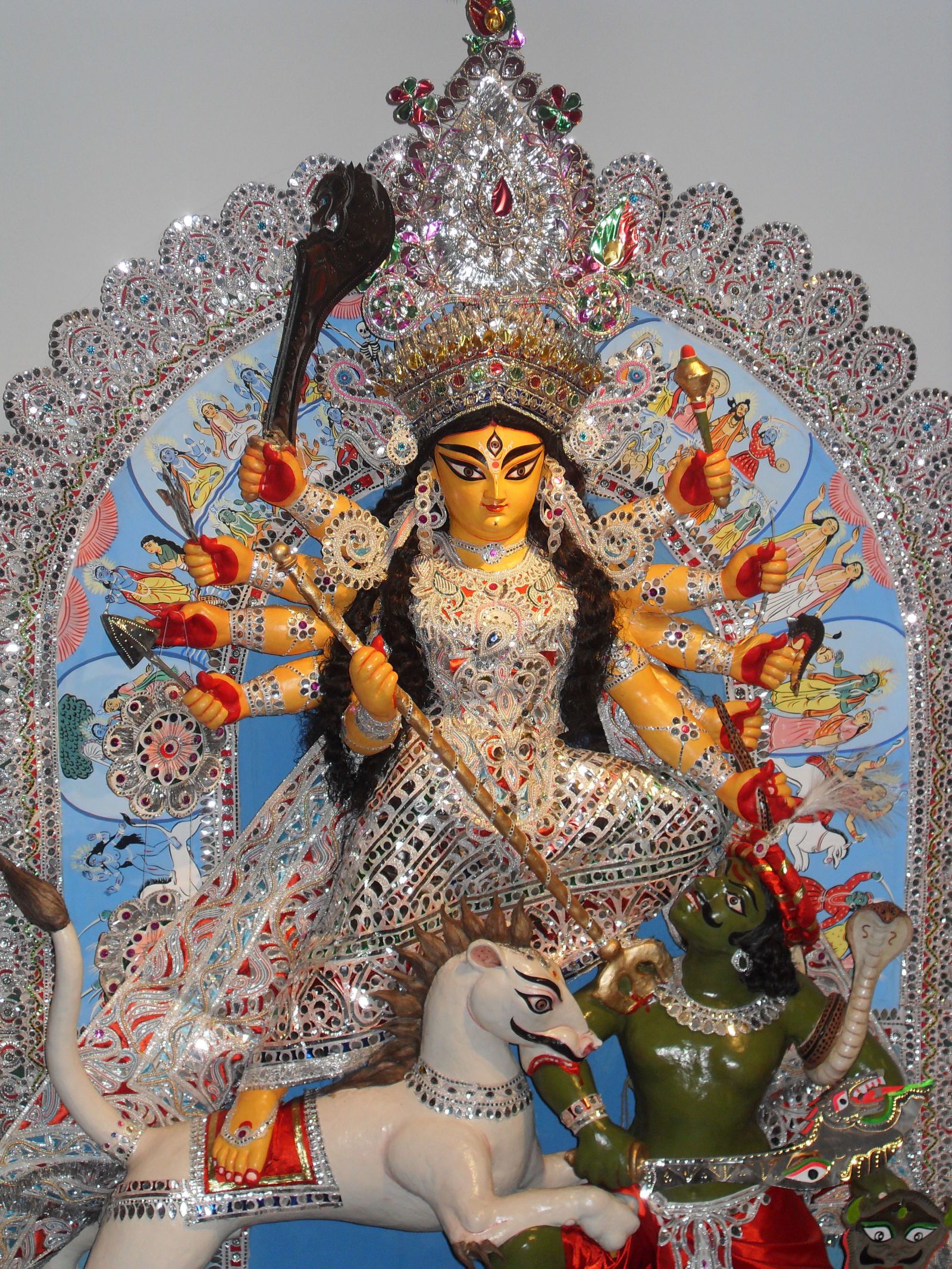
The Goddess Durga ready for the Puja
For three weeks in the spring of 2009, two artists from India created beautiful images of the Goddess Durga and her family at St Fagans National History Museum. Week by week, simple materials like clay, papier mache, hay and wood were skilfully transformed into finely detailed sculptures – all with their own symbols and meanings. They were made for the Wales Puja Committee – a Hindu group that has worshipped in Wales since the 1970s. Their existing image of the Goddess Durga was old and worn – so they needed a new one.
Durga is the invincible Mother Goddess, riding a lion into battle. Created by the Gods when evil threatened the Universe, she is ‘Shakti’ the divine power to stand against, absorb and fight dark forces. Throughout worship, known as Puja, Hindu people celebrate the defeat of evil by Durga.
She is portrayed in all her beauty displaying strength, warmth and motherly love. She stands proud on a lion slaying the demon King, Mahisasura. With her are her two sons, Ganesh and Kartikeya and her two daughters Lakshmi and Saraswati.
The two award winning artists - Purnendu and Dubyendu Dey – were from Kolkata, India. Throughout the process of creation certain religious rites were followed. The most important of these is known as Chakkshu Daan - the Painting of the Eyes. Purnendu carefully brought Durga to life by painting her eyes. From this point on the image of the Goddess is worshipped as though she has all the powers given to her by the Gods.
The Pujas begin on the sixth day of Navaratri, the nine nights of rites to the Goddess Durga, with the welcoming of the Goddess and her family. Mantras are chanted in Sanskrit and offerings made to seek the Goddess’ blessings to fight evil.
After nine days the final day known as Dushera arrives, this is the day to say goodbye to the Mother Goddess and her family. In India, they are placed into the waters of the river Ganges, with hopes of welcoming her back next year. In Wales, they are stored carefully ready for next year.
Durga
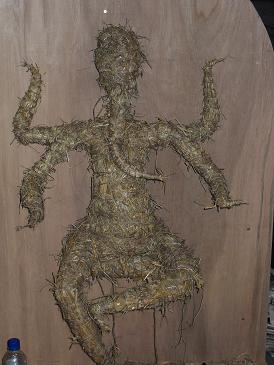
Ganesha's body formed by tying hay to a wire frame
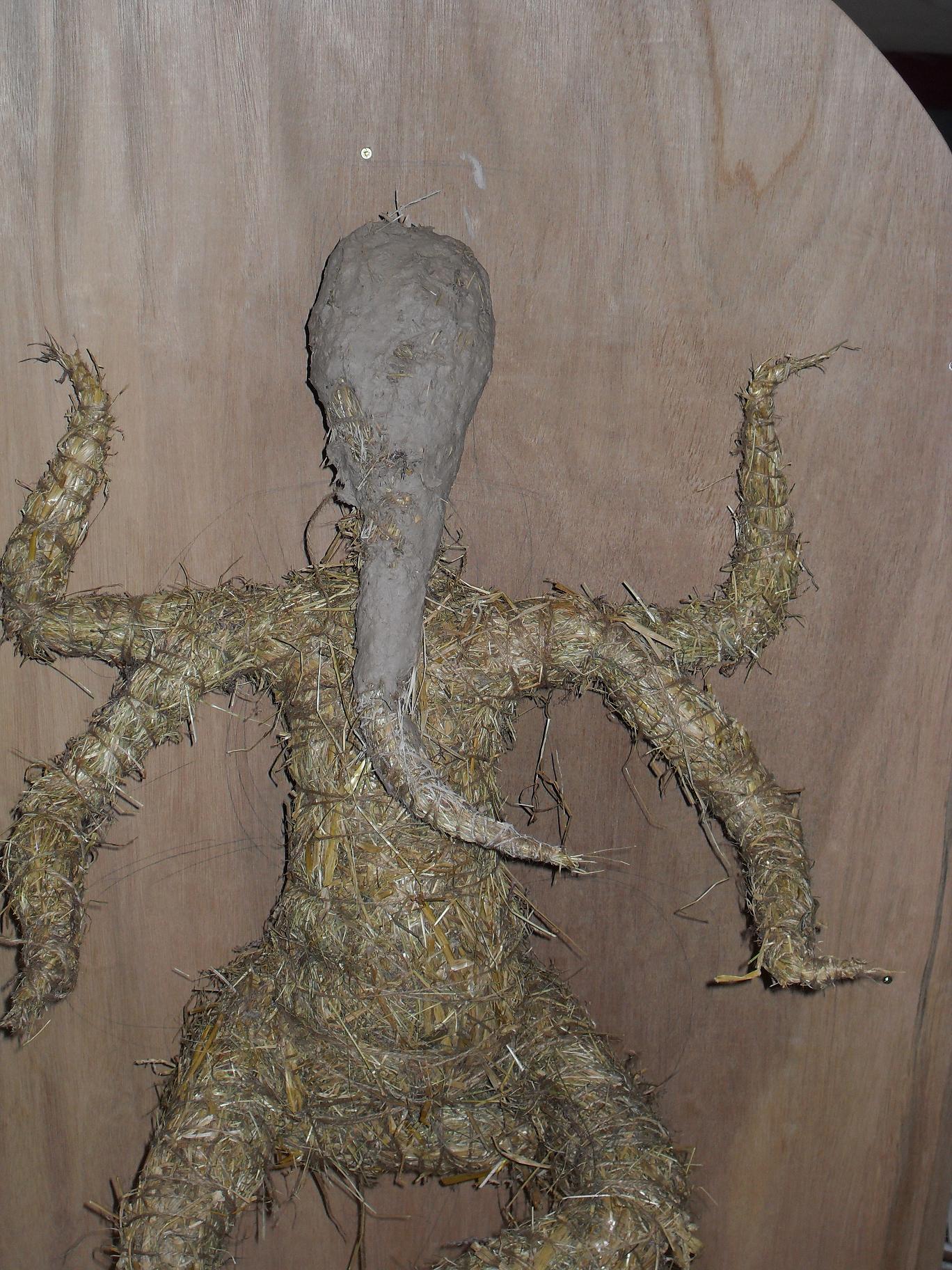
Placing a mixture of clay and paper on to the straw to form Ganesha's head
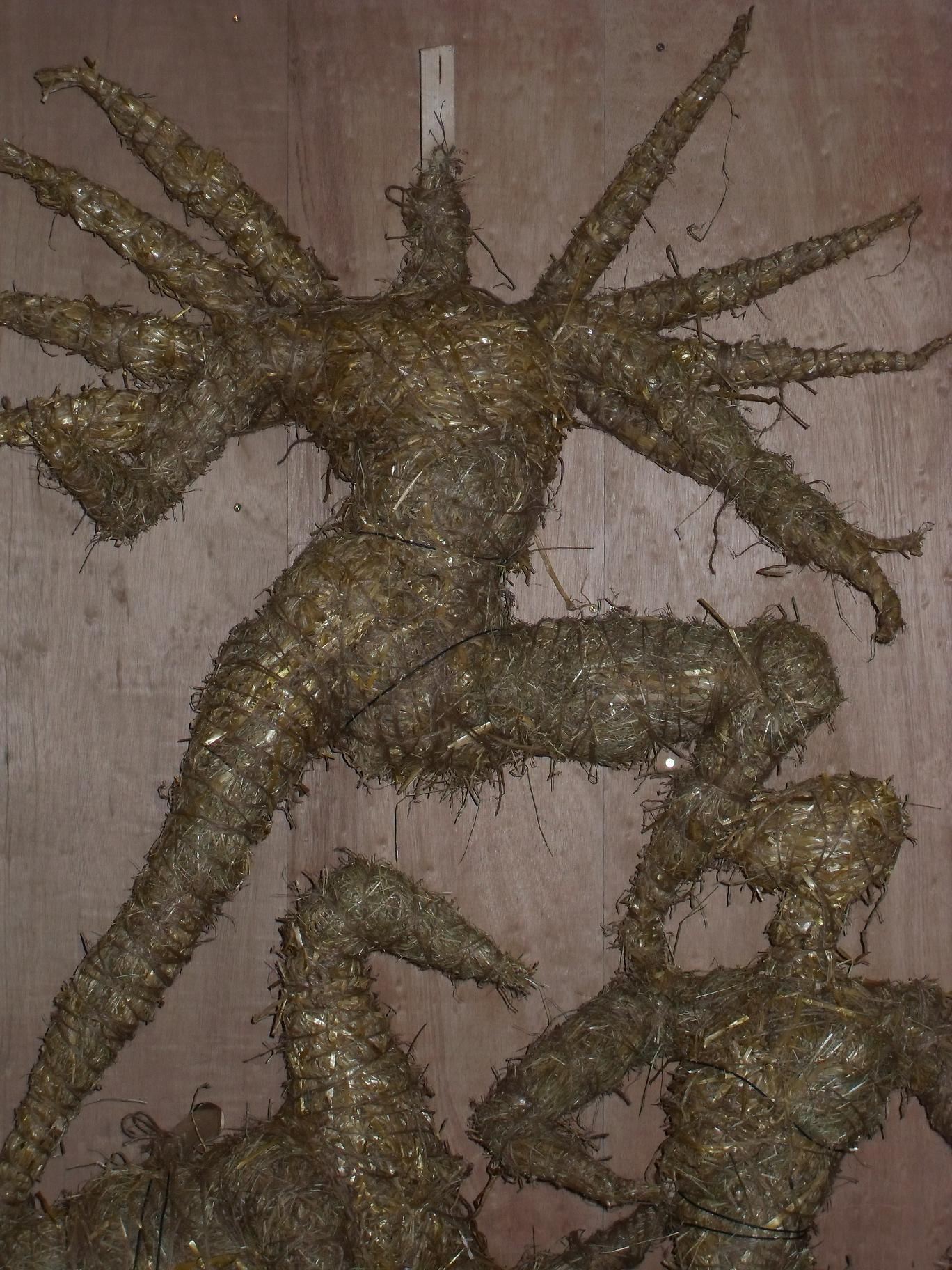
The Goddess Durga, her lion, and the buffalo demon formed from straw and wire
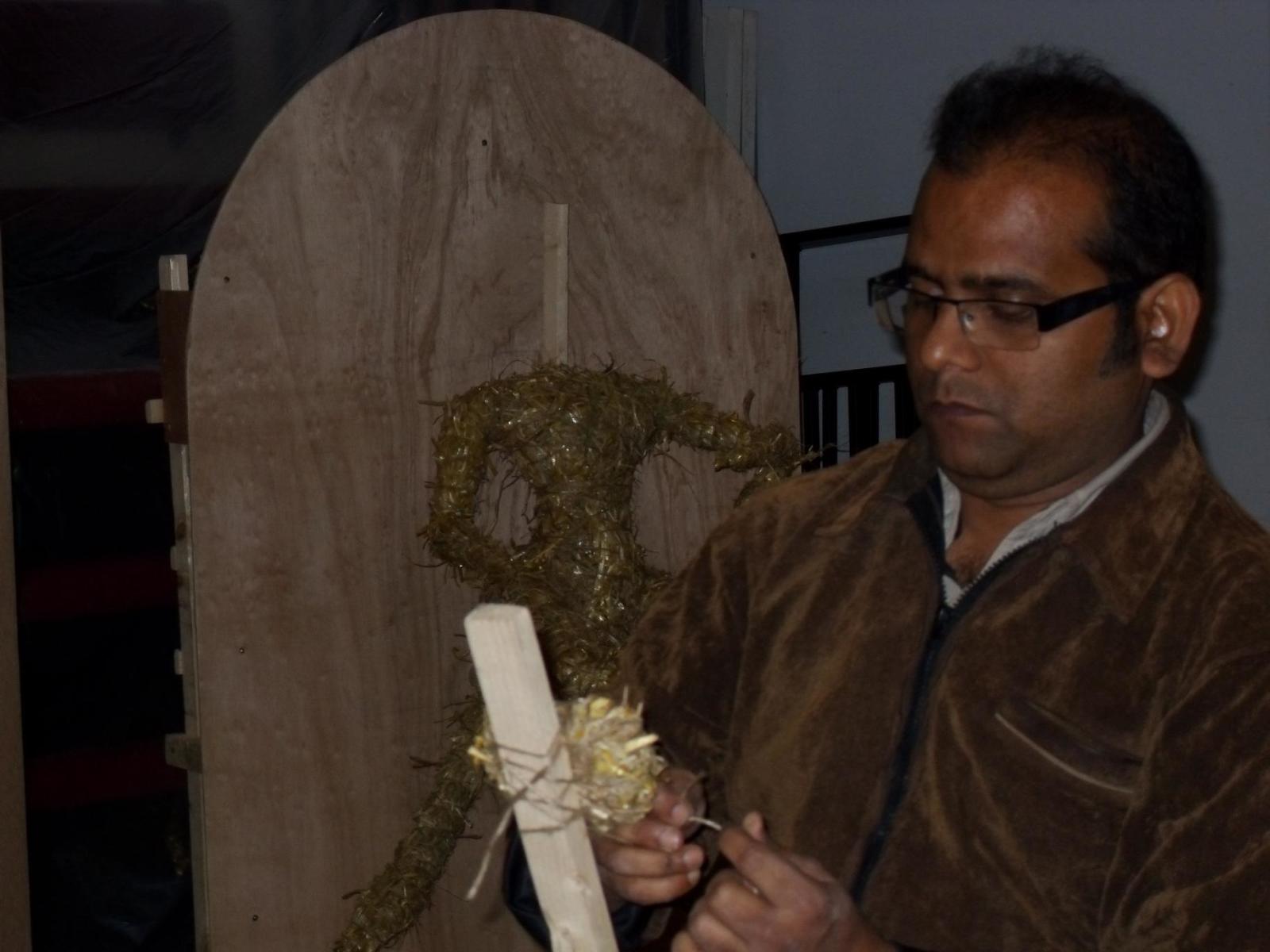
The artist Dibyendu Dey weaving wire and hay to form a head
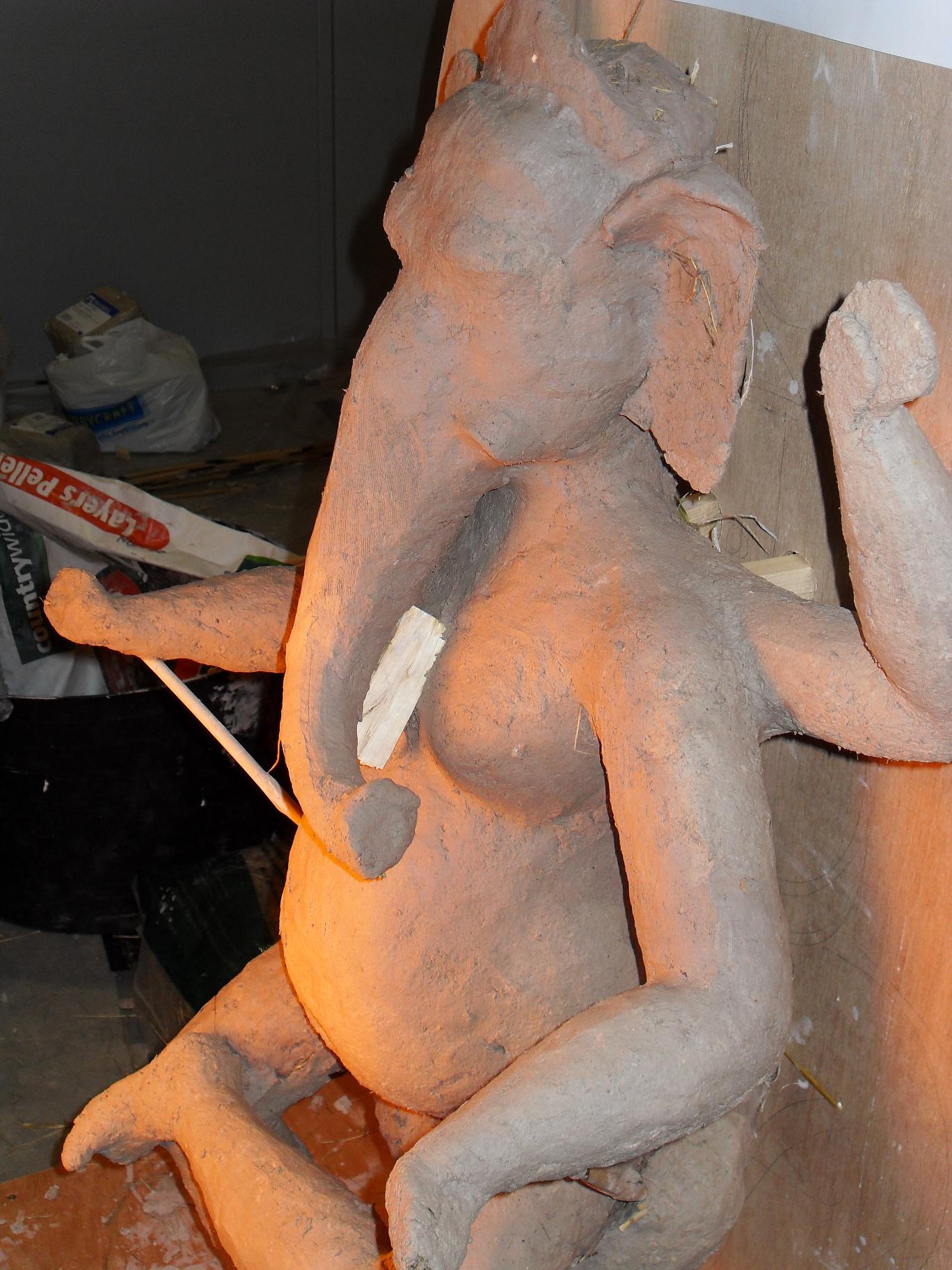
Using a heat lamp to dry the clay
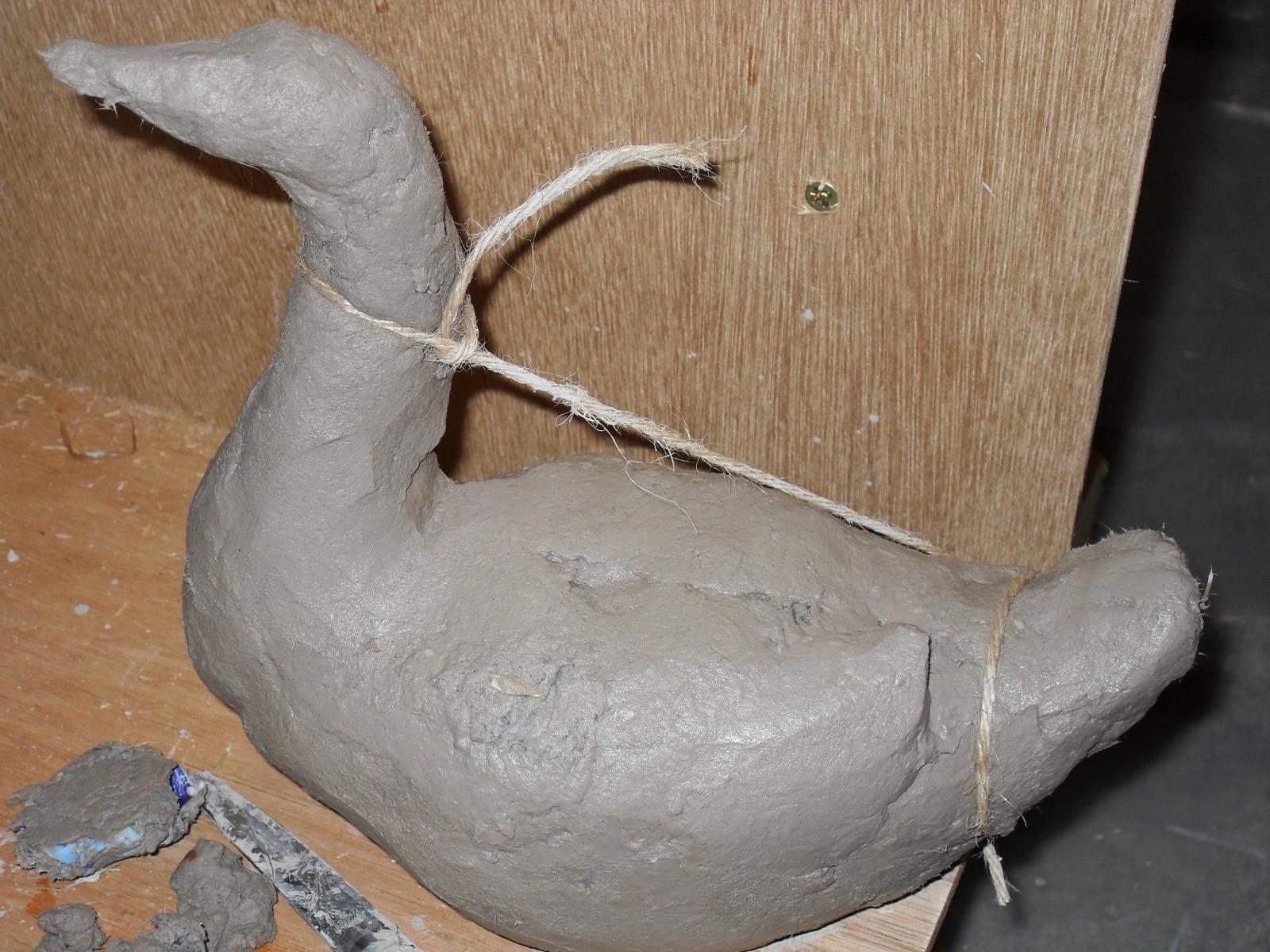
Securing the neck of Sarasvati's swan to the body with string as the clay dries
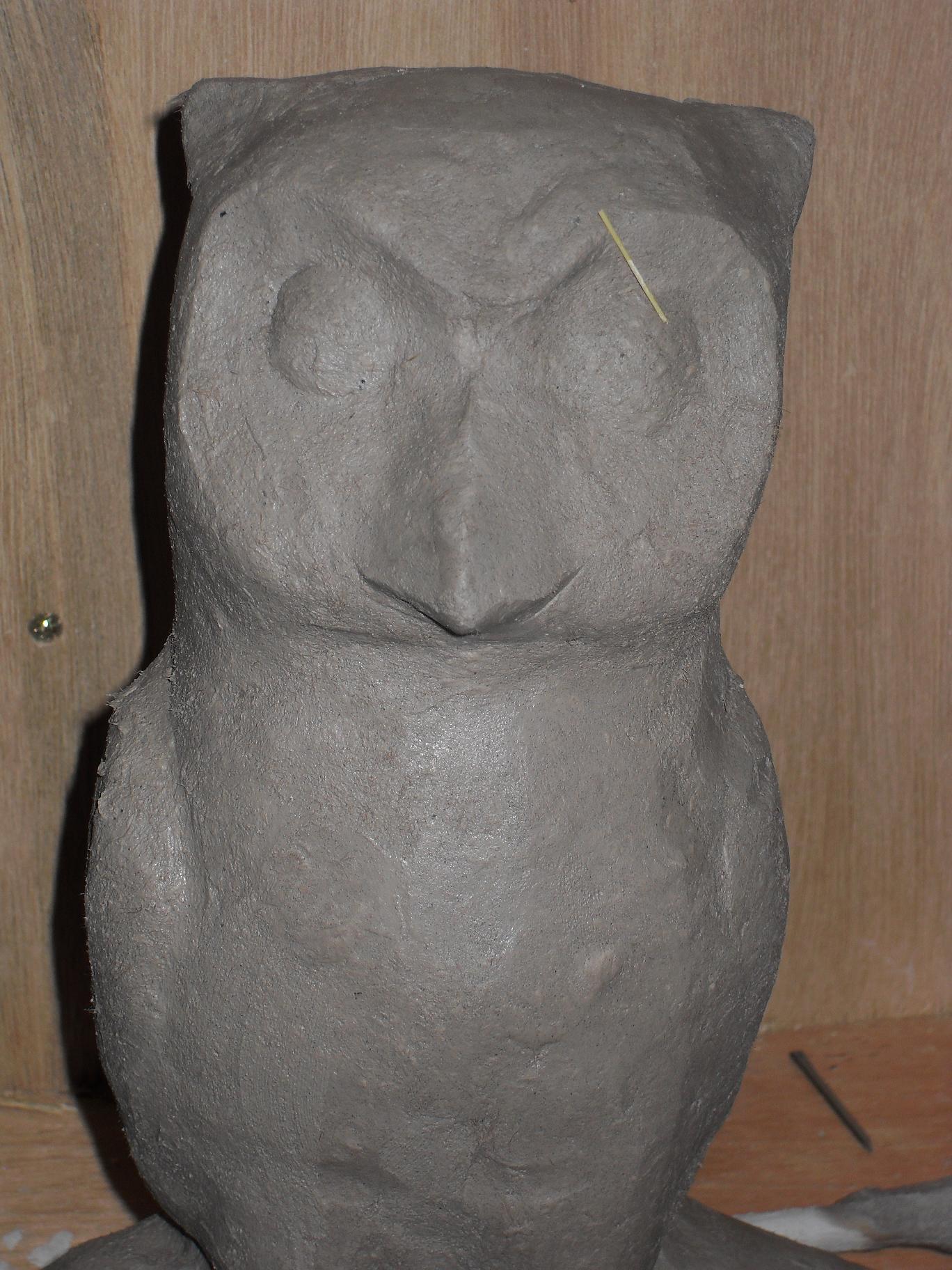
Tylluan Lakshmi
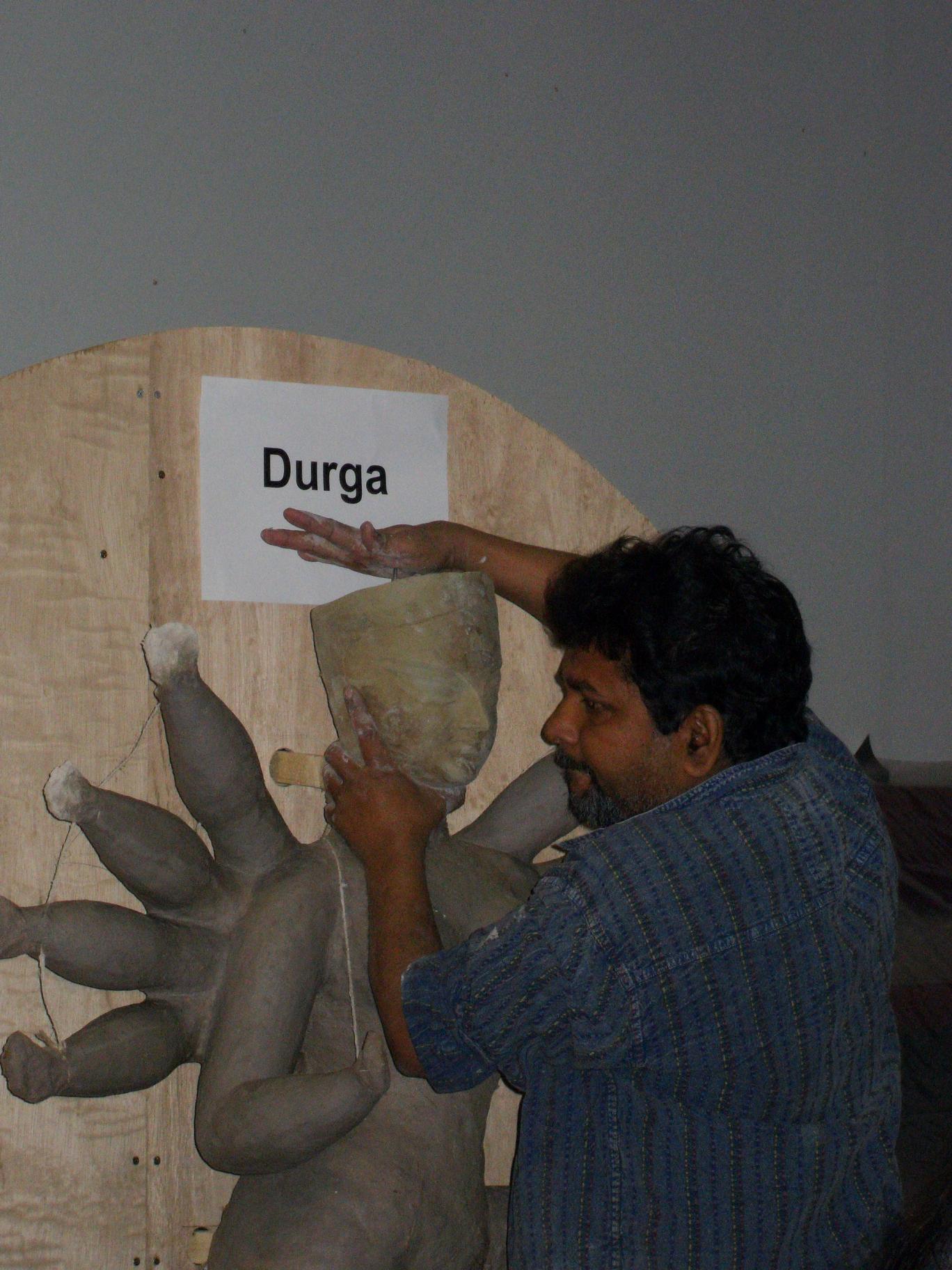
Placing a mask, already made by the artists, on the Goddess Durga's face
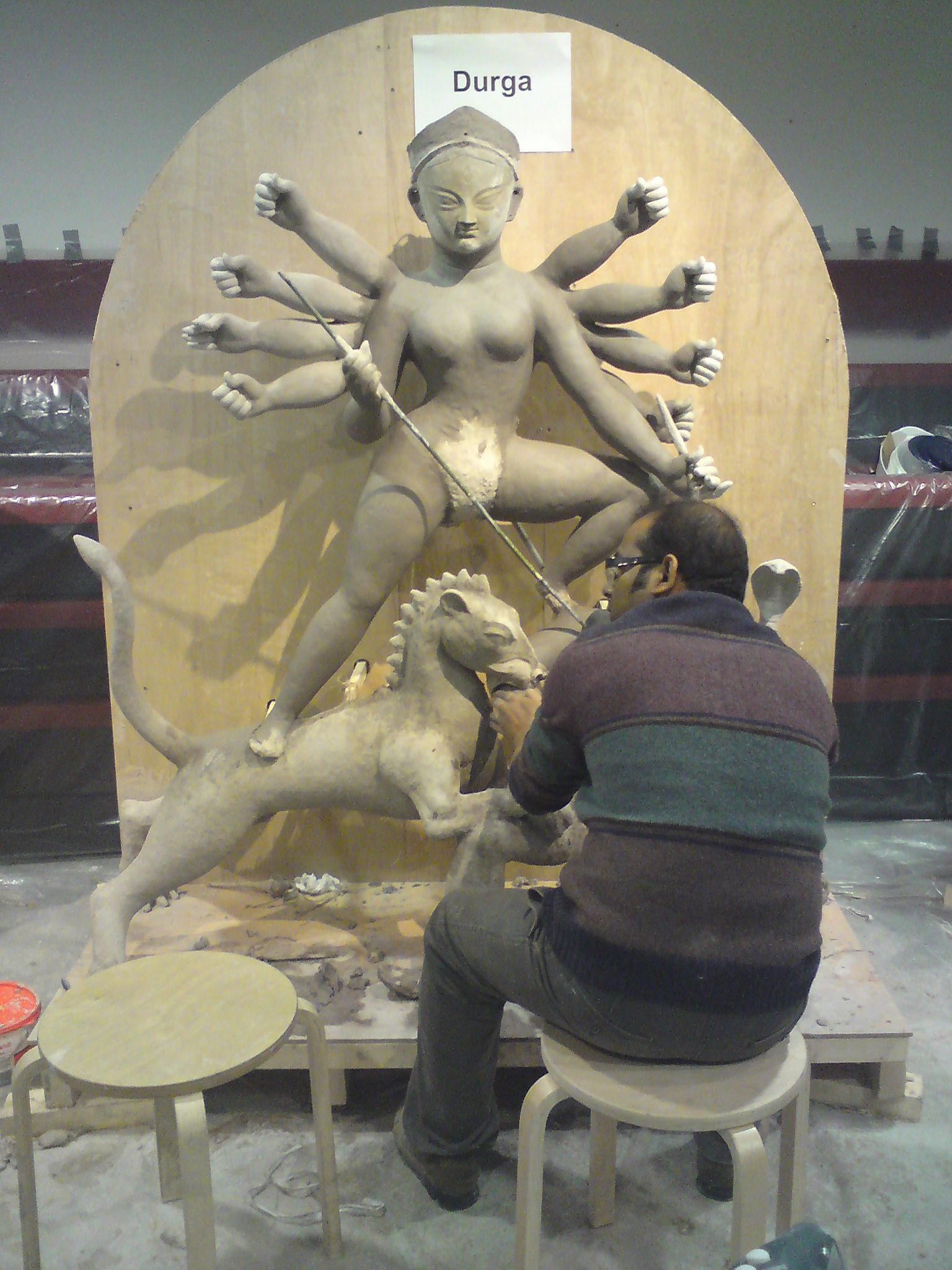
The artist Dibyendu Dey shaping the Goddess Durga, her lion and her foe, the buffalo demon
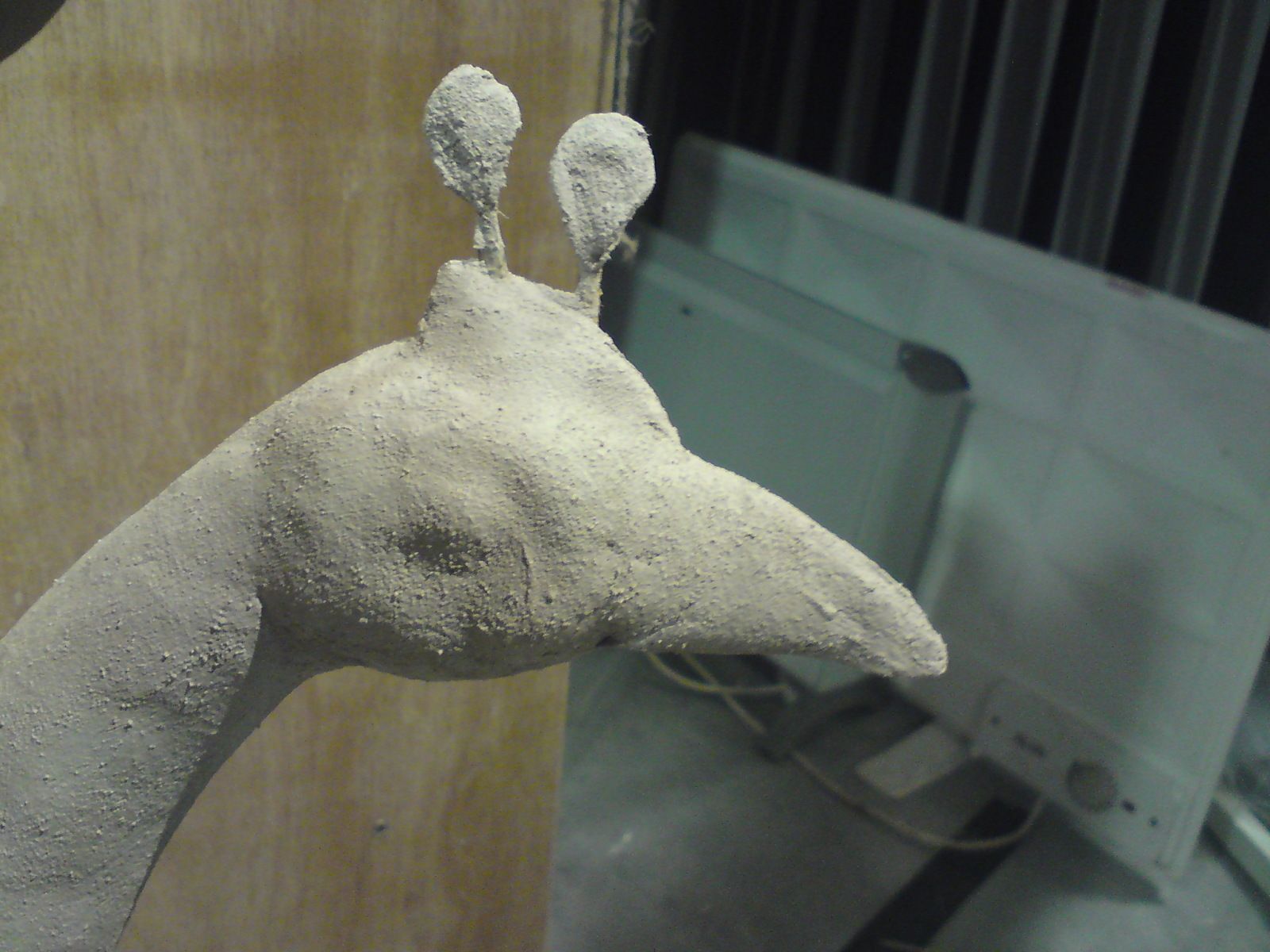
A close-up of the head of Kartikeya's peacock
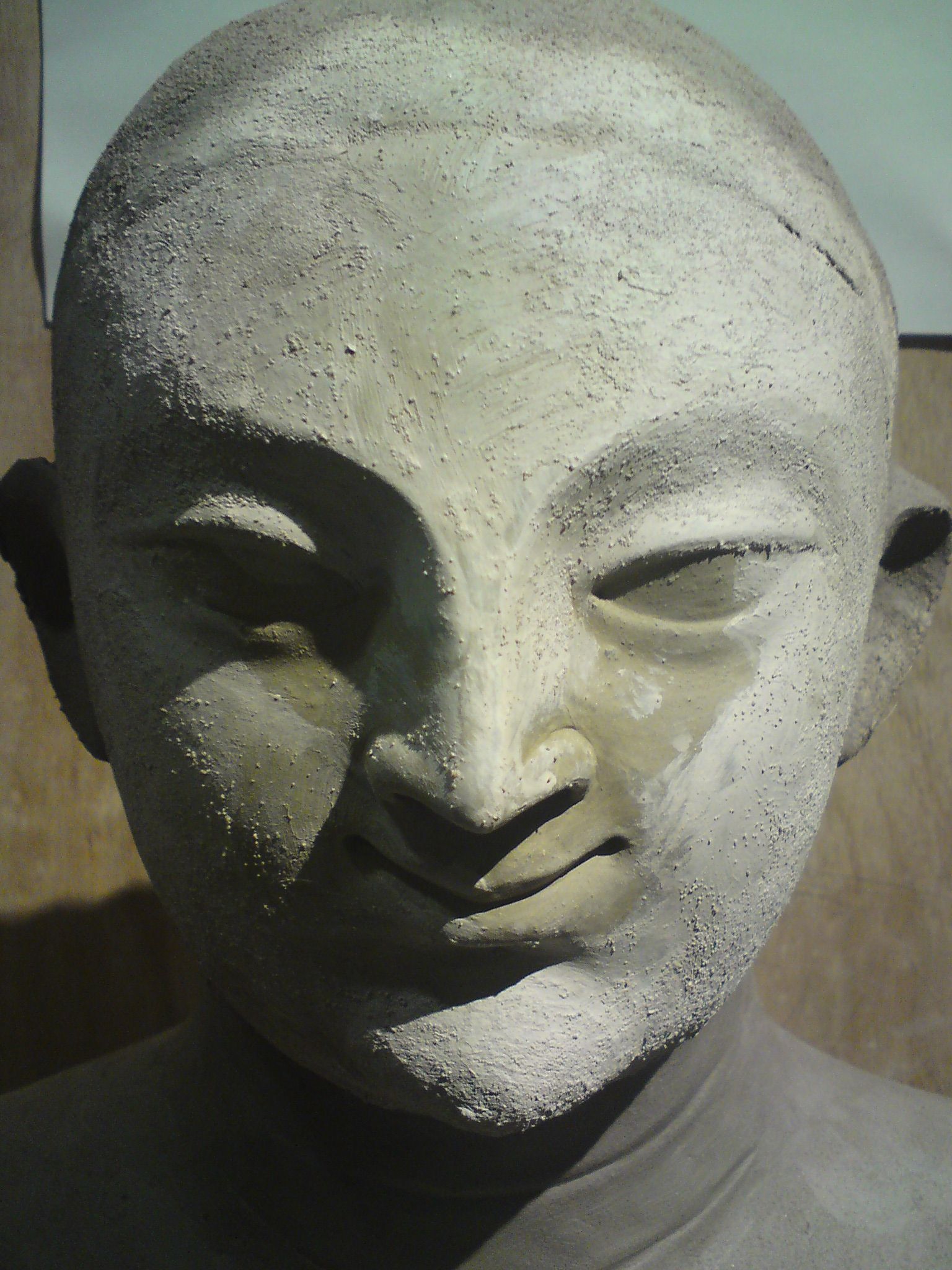
The face begins to dry
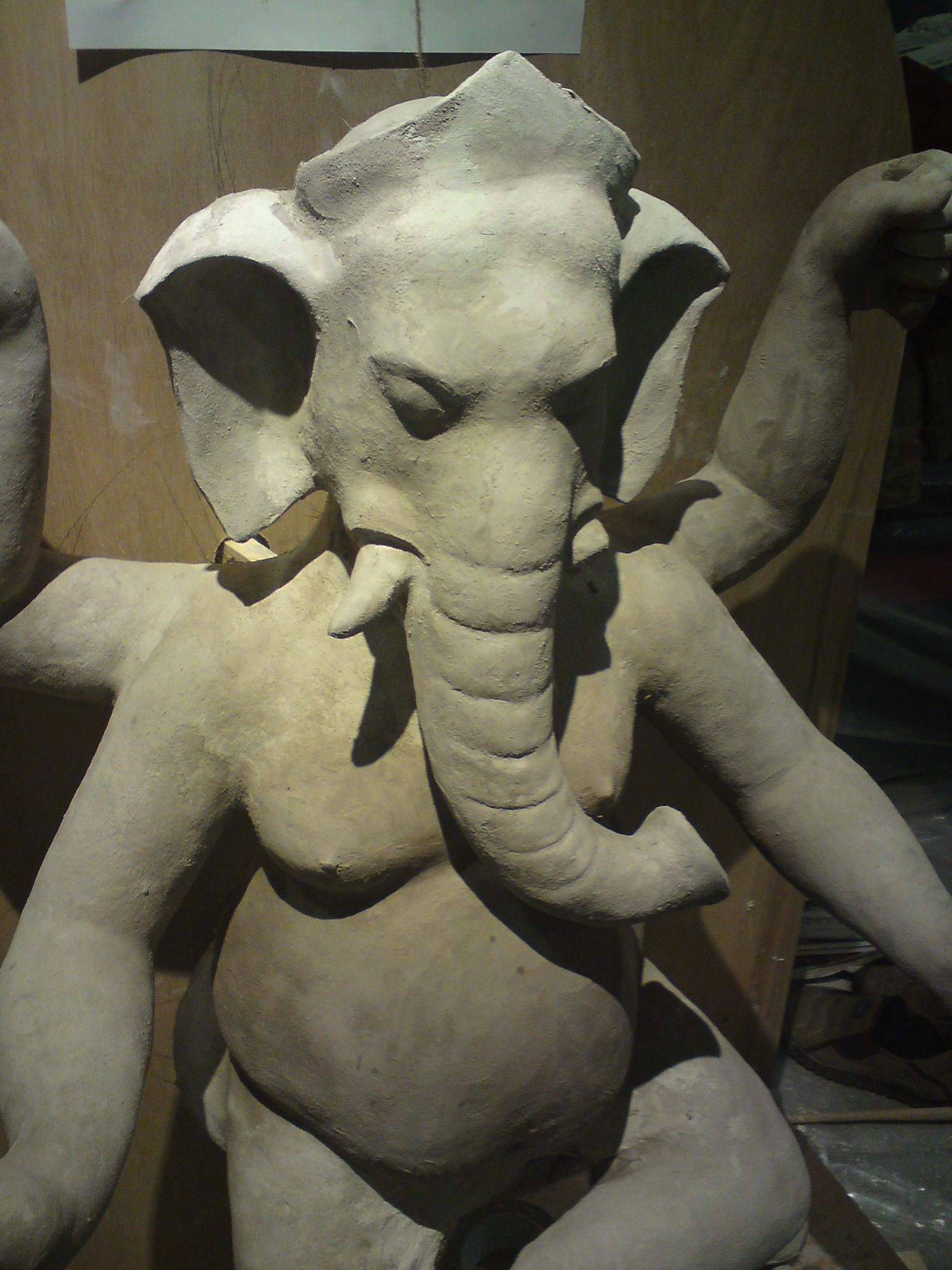
Ganesha before being painted
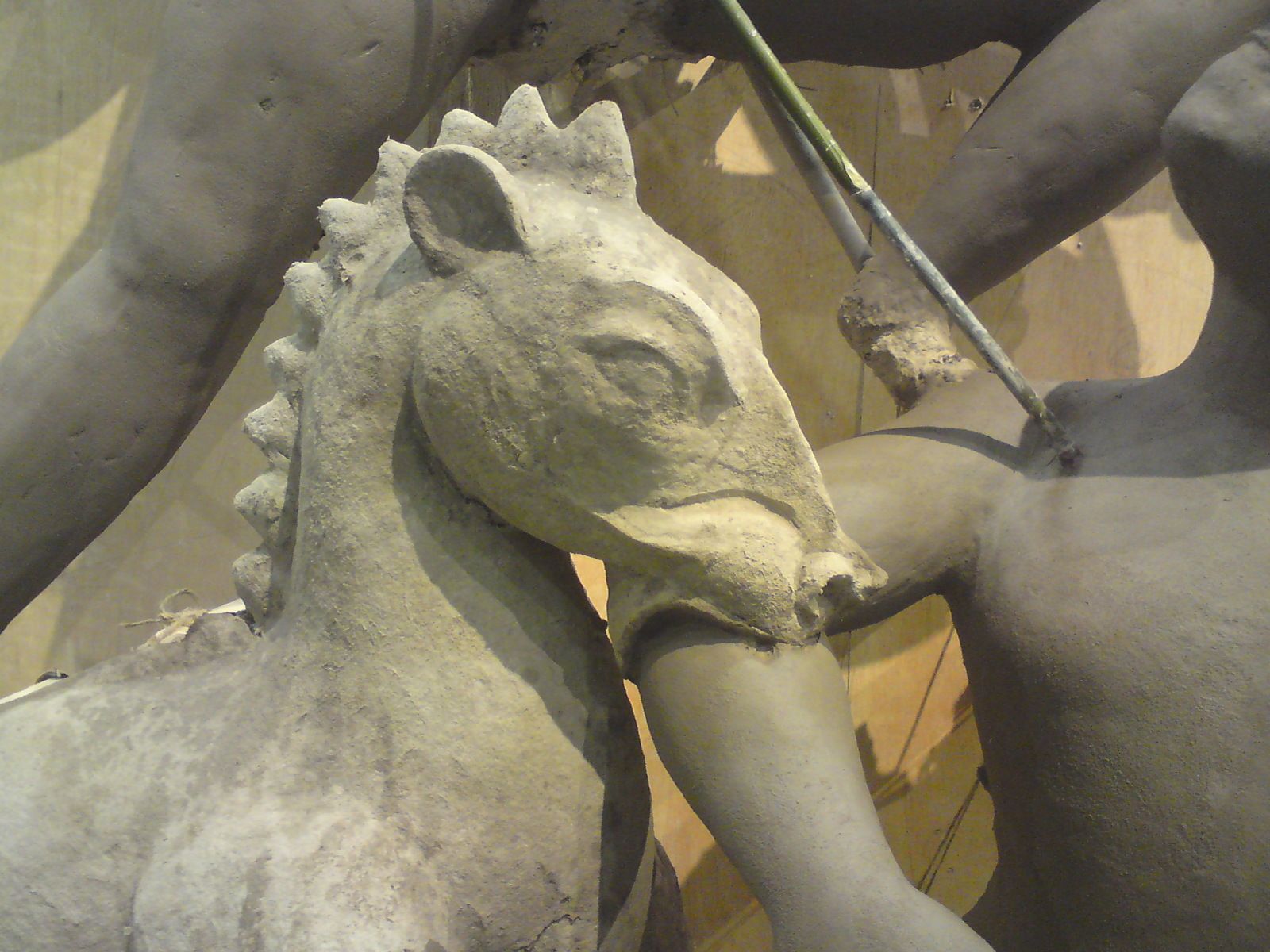
The Goddess Durga's Lion
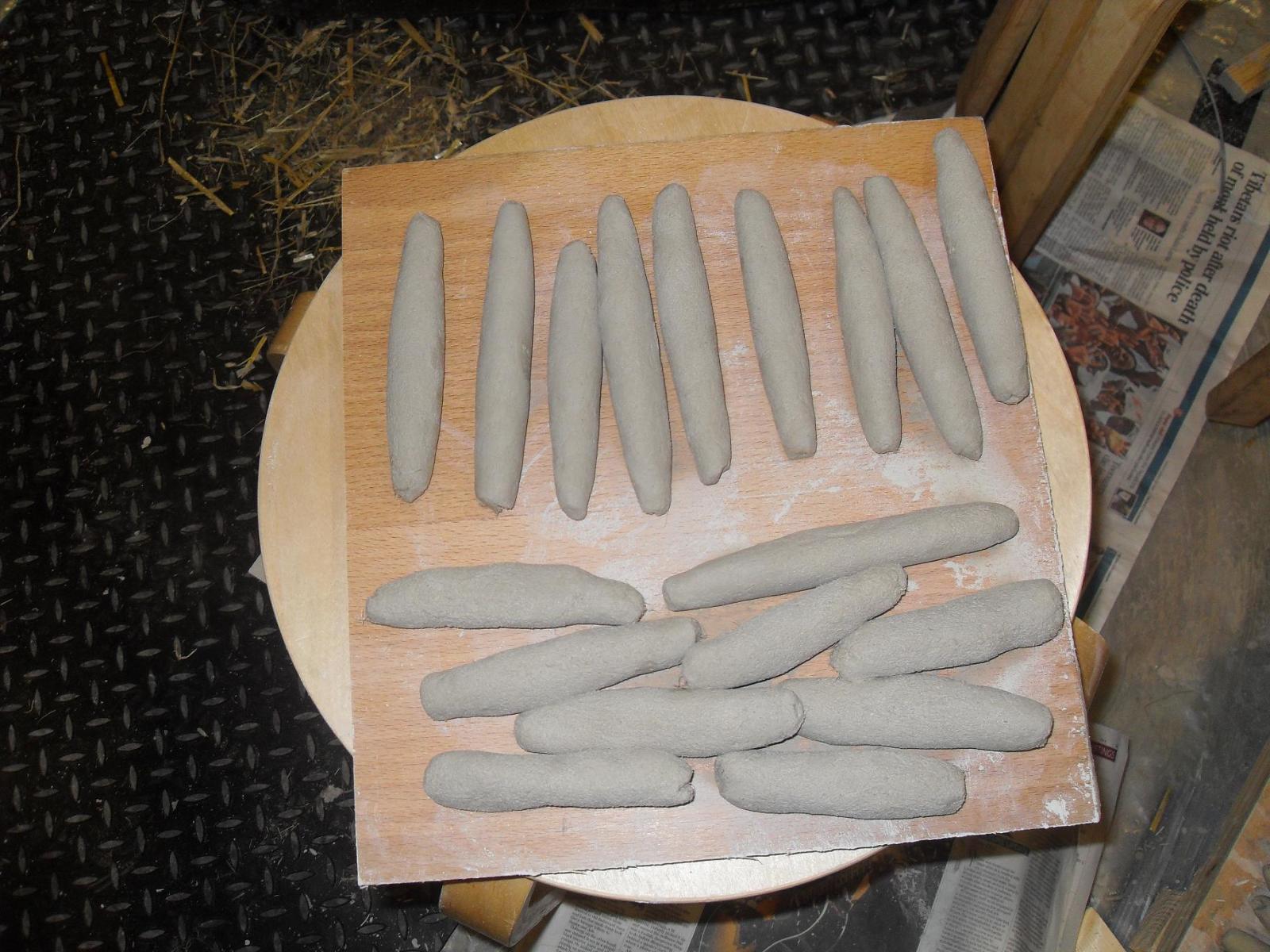
Rolling the clay to make fingers
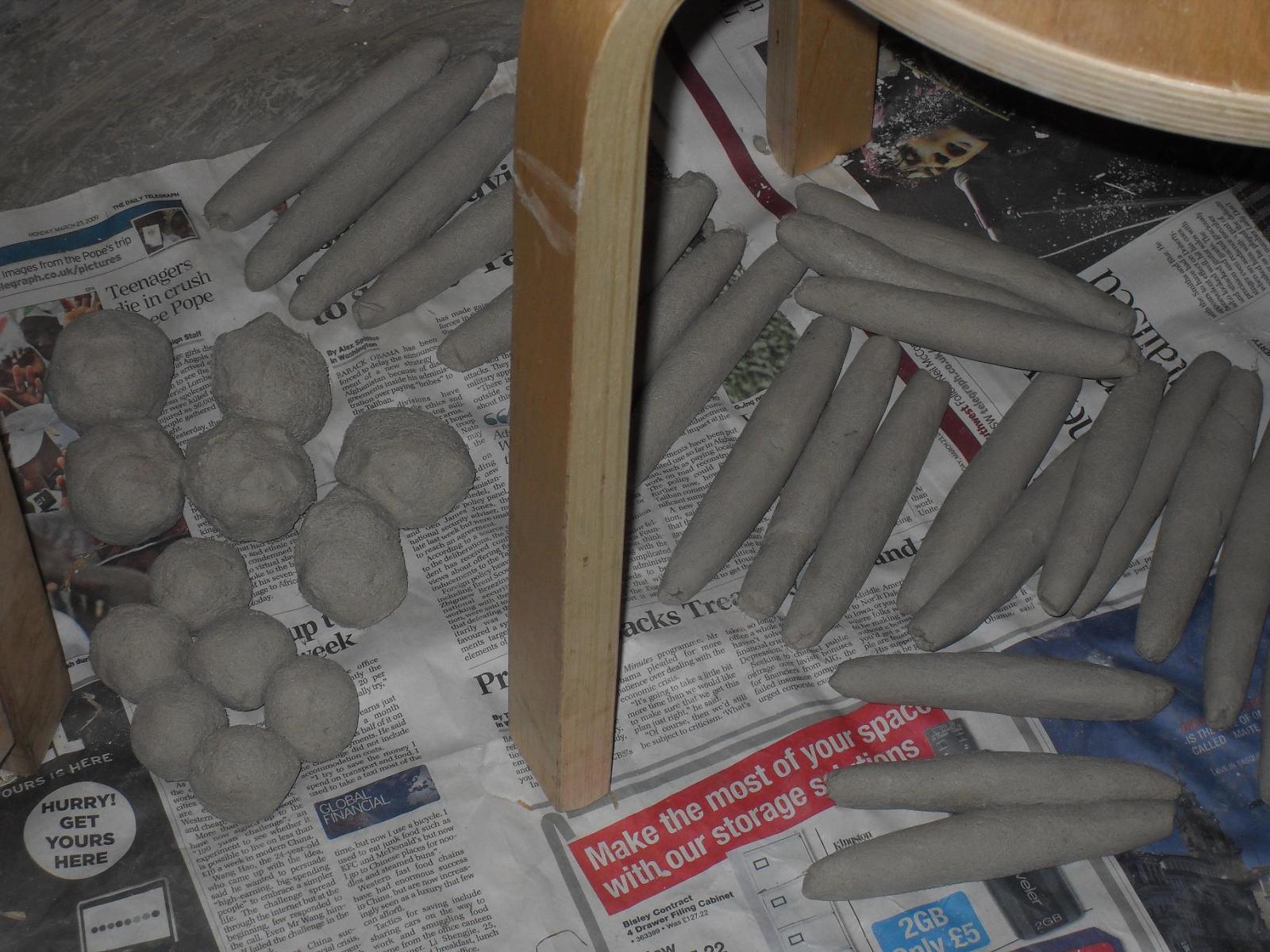
The clay rolled to form fingers and palms
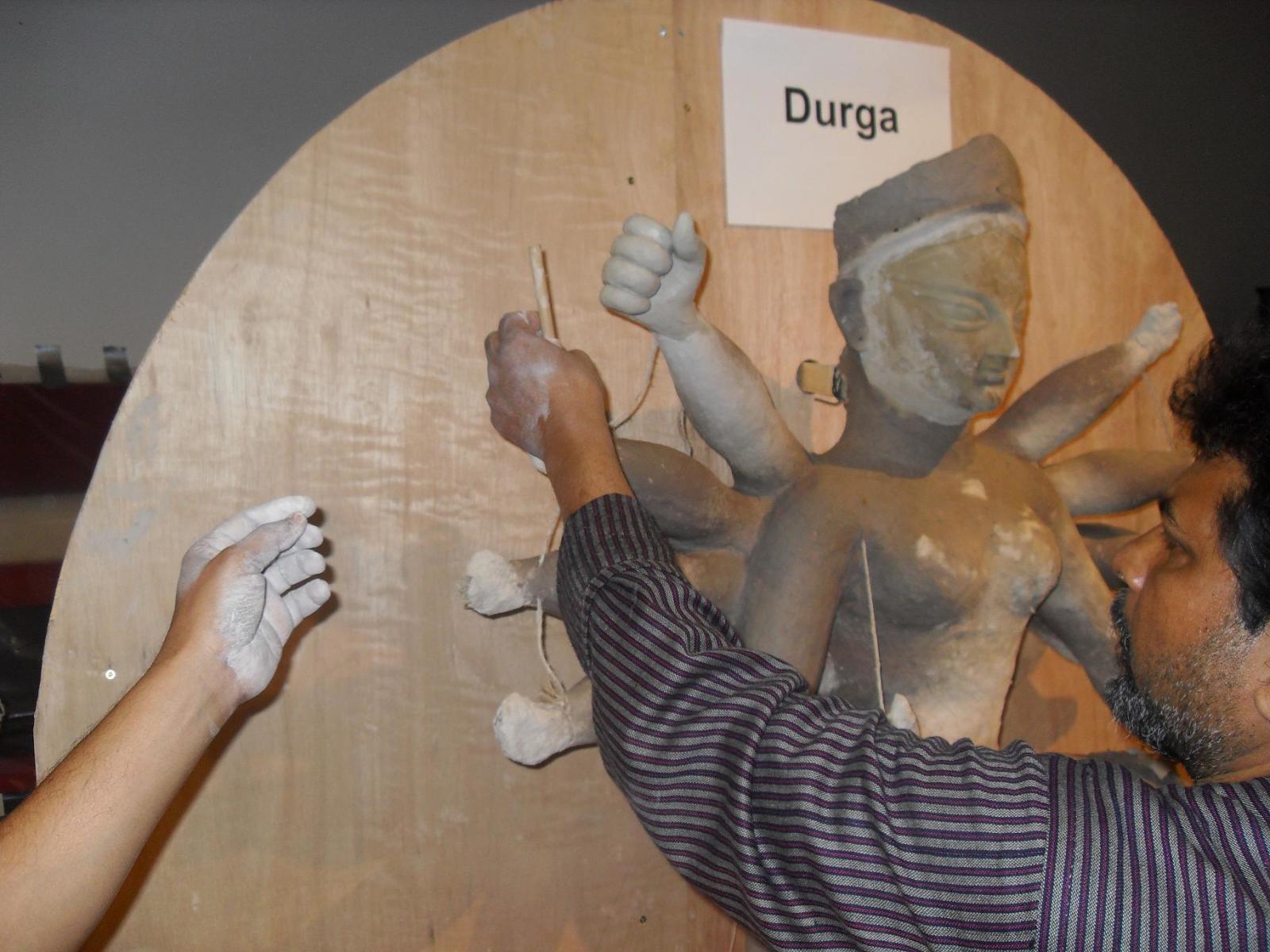
Placing the fingers on the Goddess Durga's hands
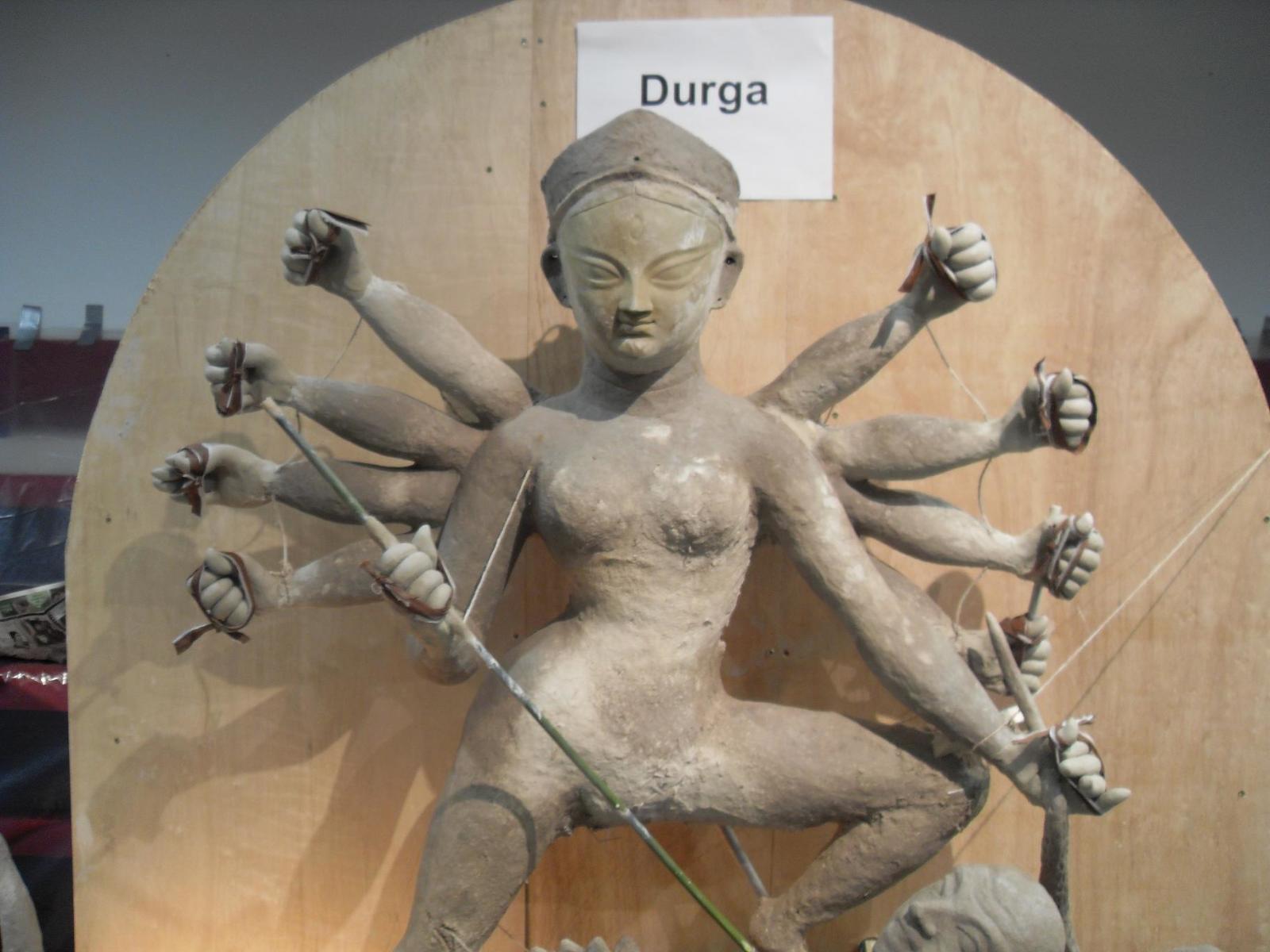
The image of the Goddess Durga drying before being painted
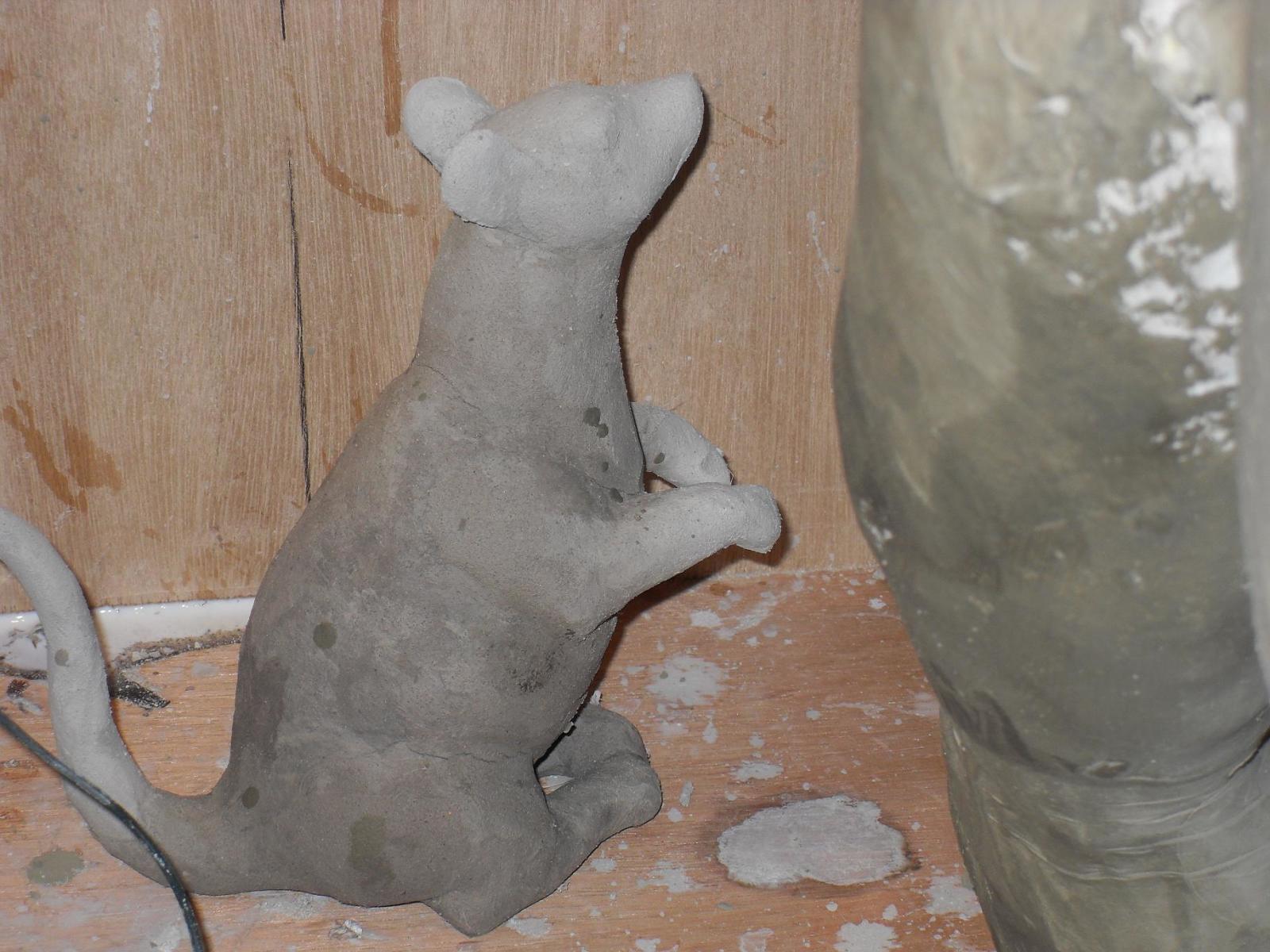
Ganesha's mouse, perhaps a symbol of his keen, quick intelligence
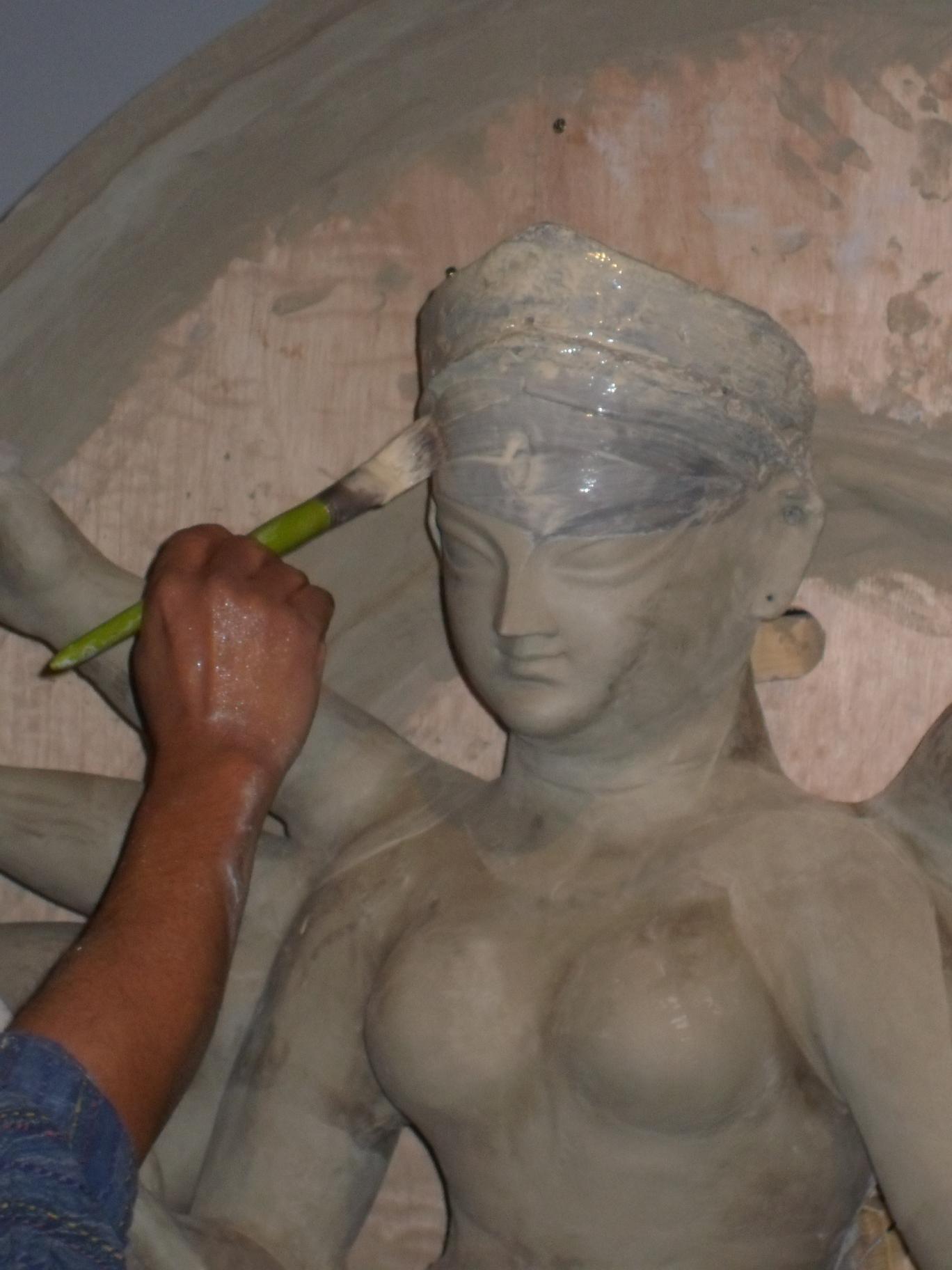
Painting glue over a thin layer of cotton to seal to seal the form
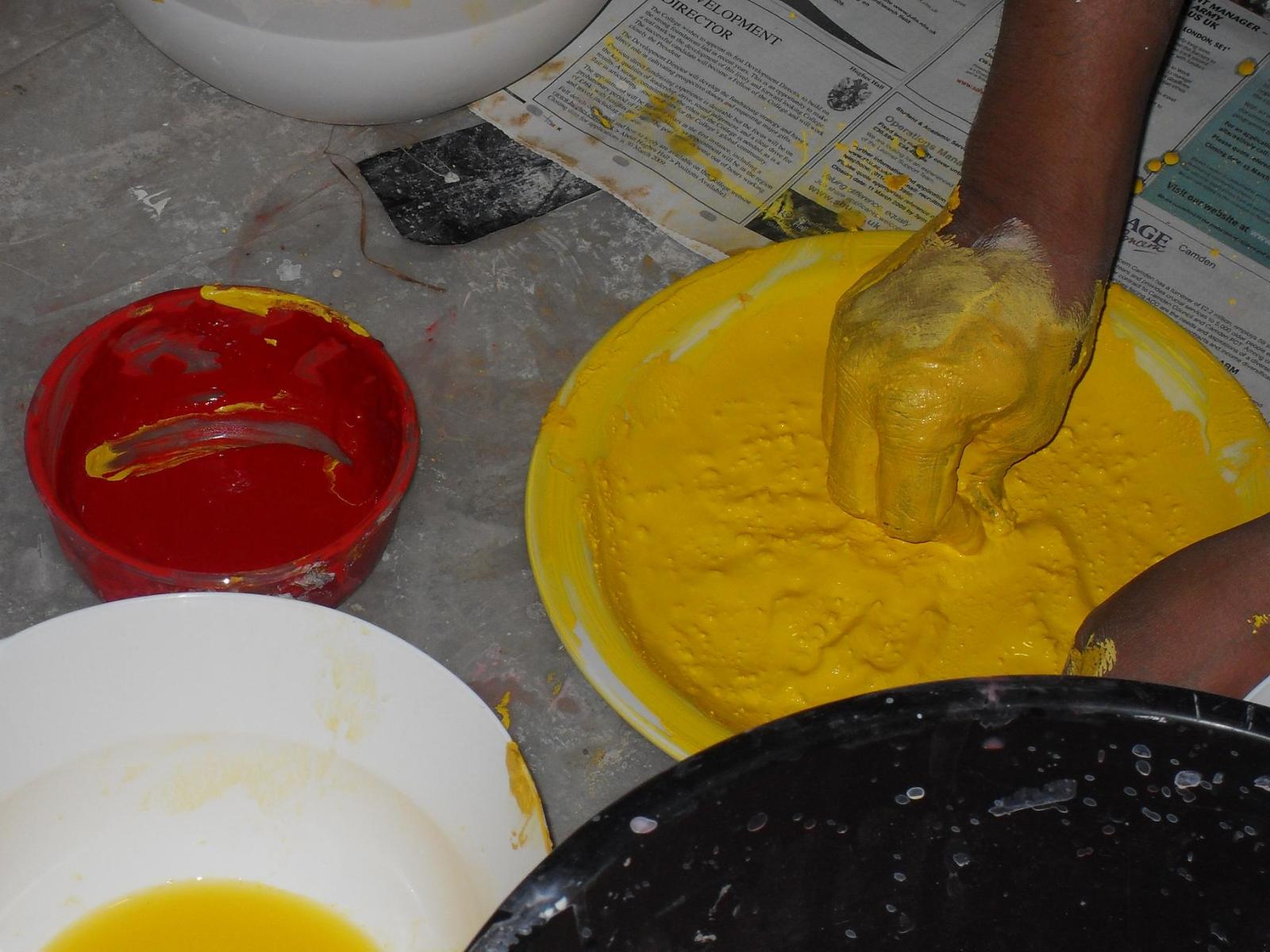
Mixing the paint
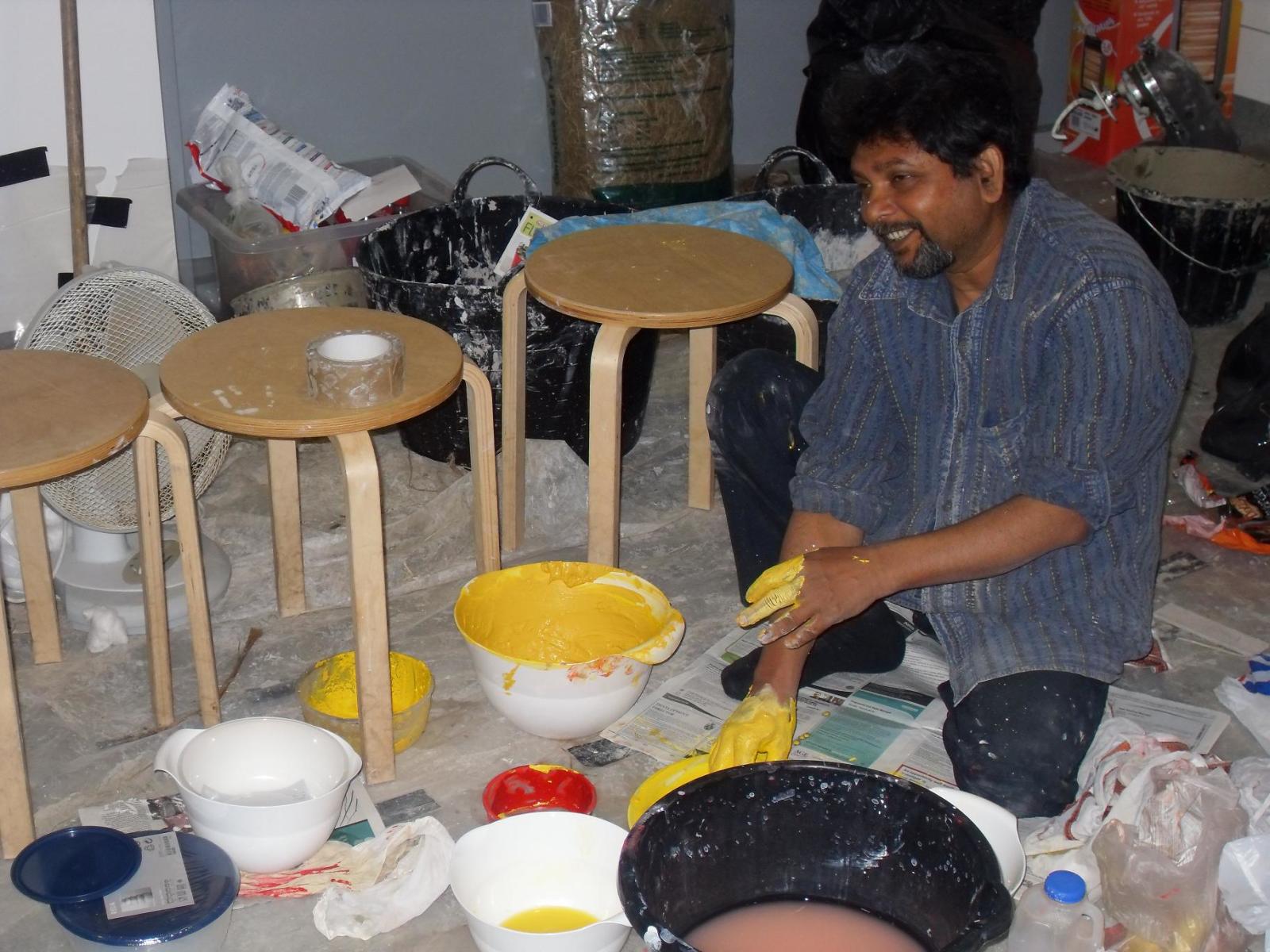
The artist Purnendu Dey mixing the natural powdered pigments with water
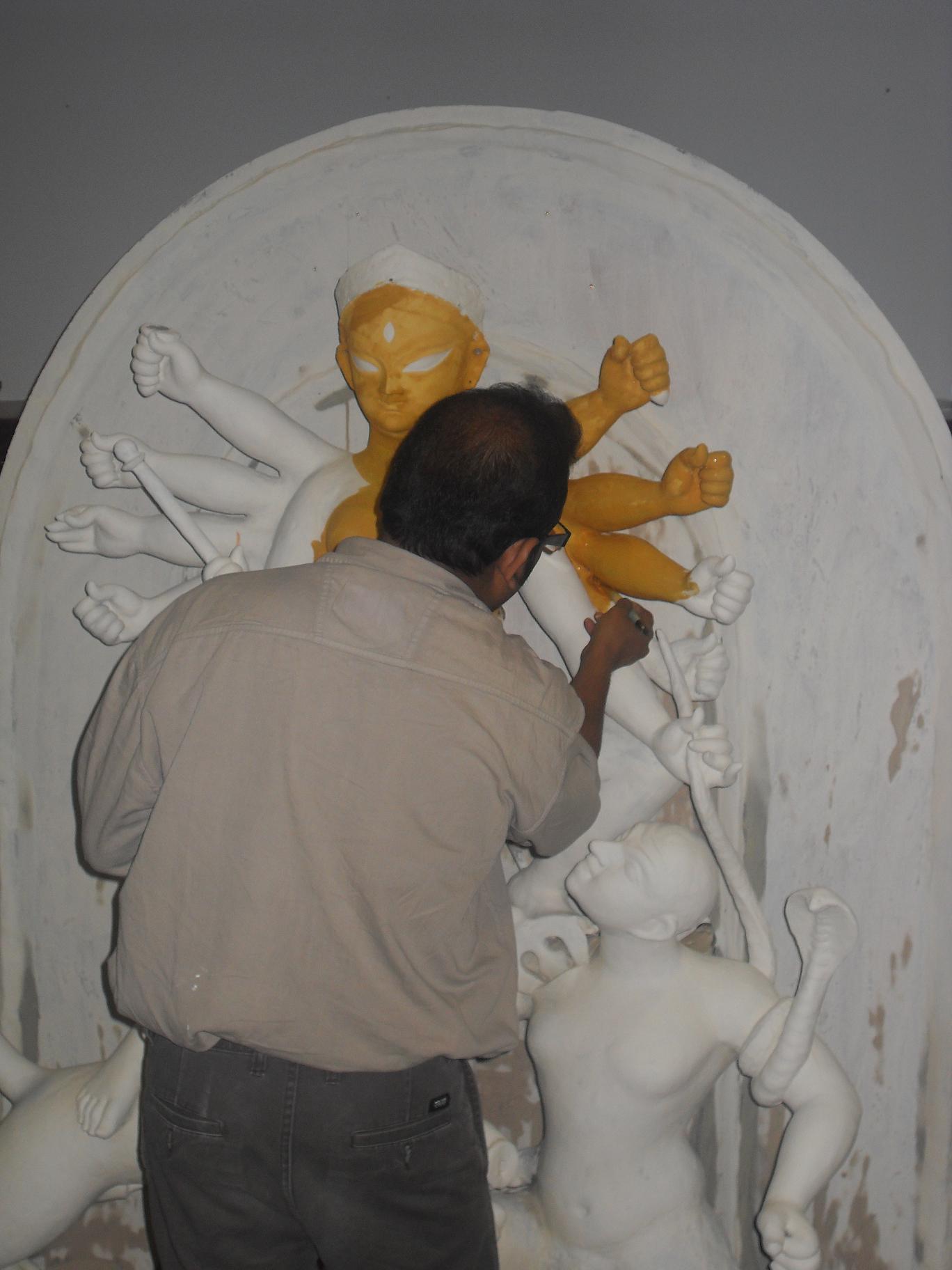
The artist Dibyendu Dey painting the Goddess Durga
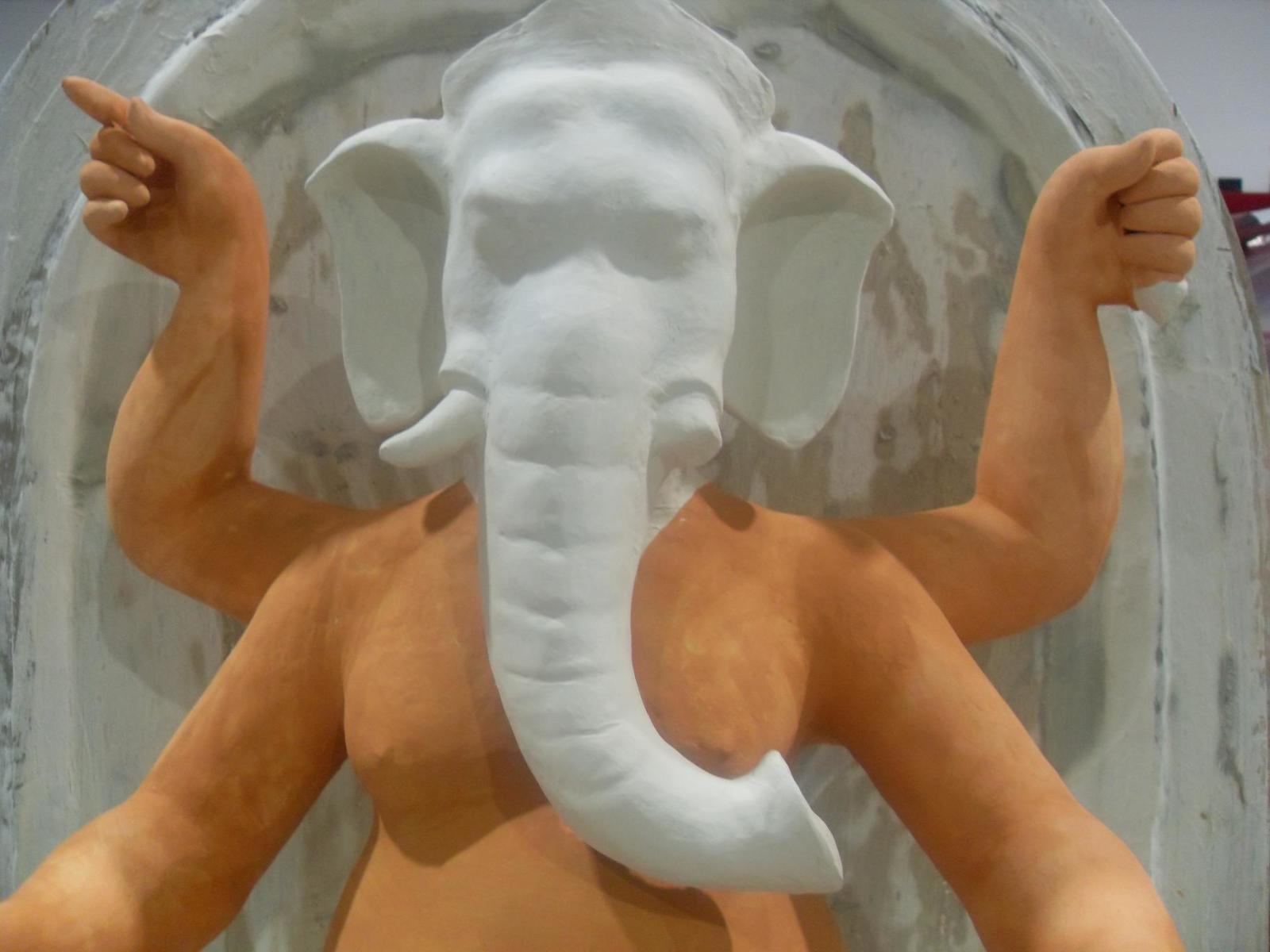
Ganesha
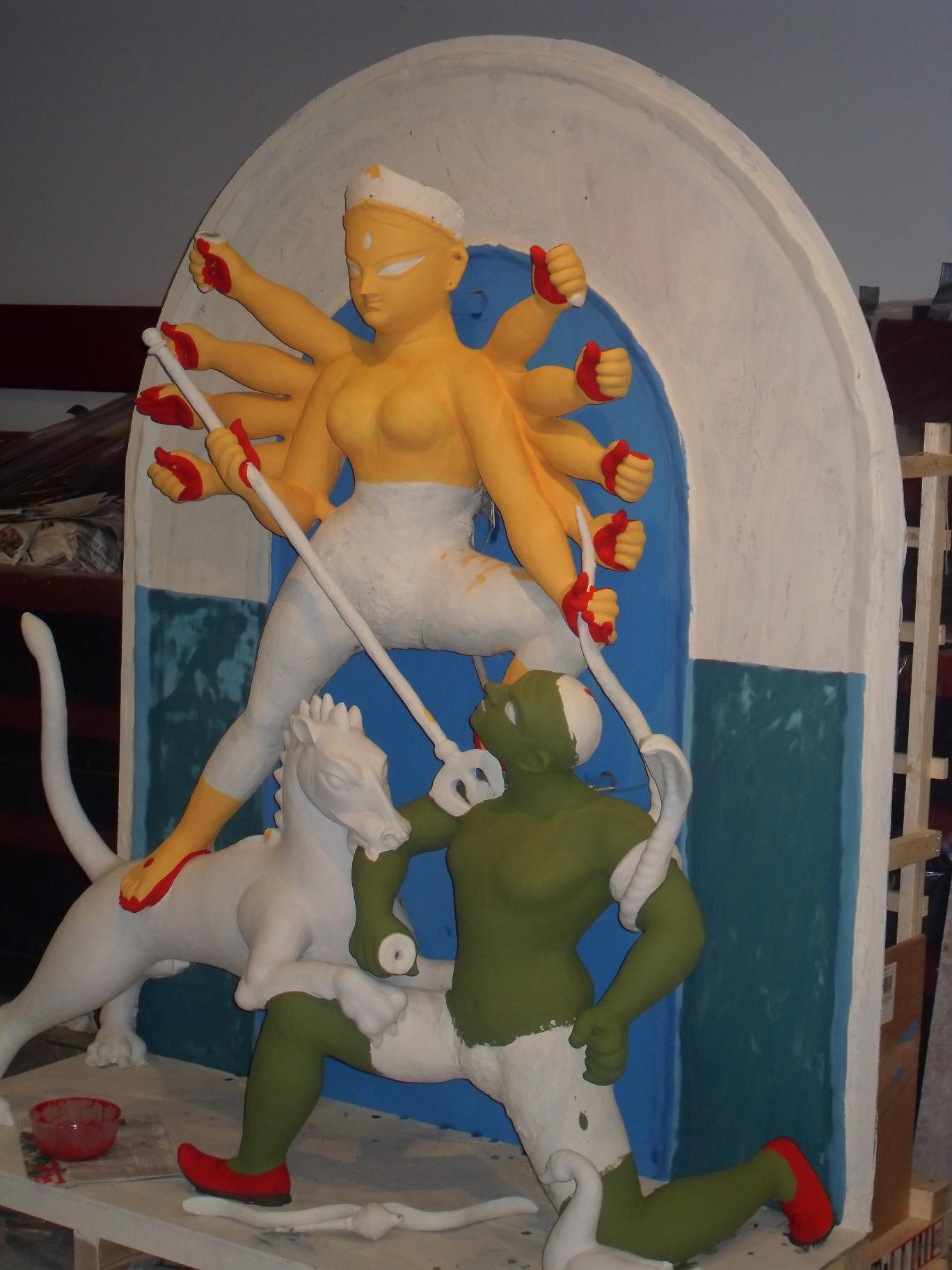
The Goddess Durga victorious over the buffalo demon
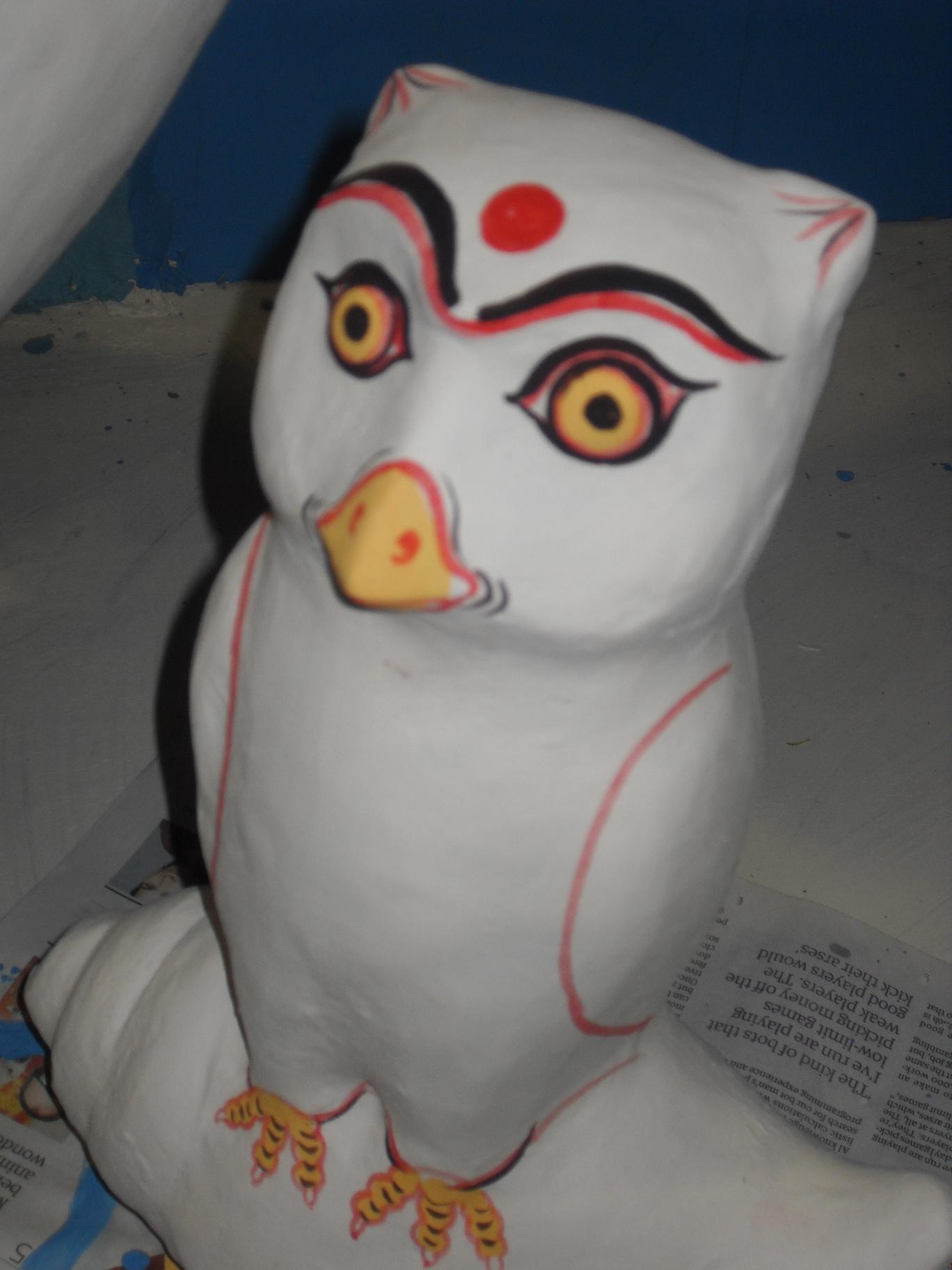
Lakshmi's Owl
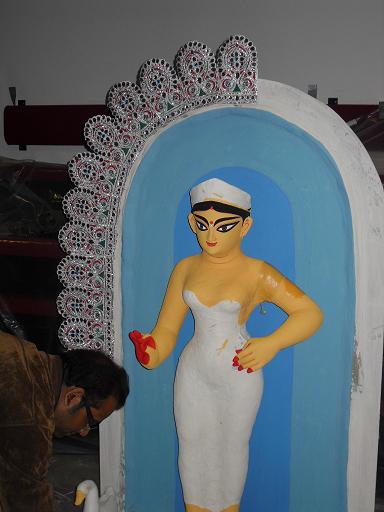
Placing a glittering border around the form. The colour red is considered to be lucky by the people of India, and Hindu deities are depicted as having red palms to show their divinity.
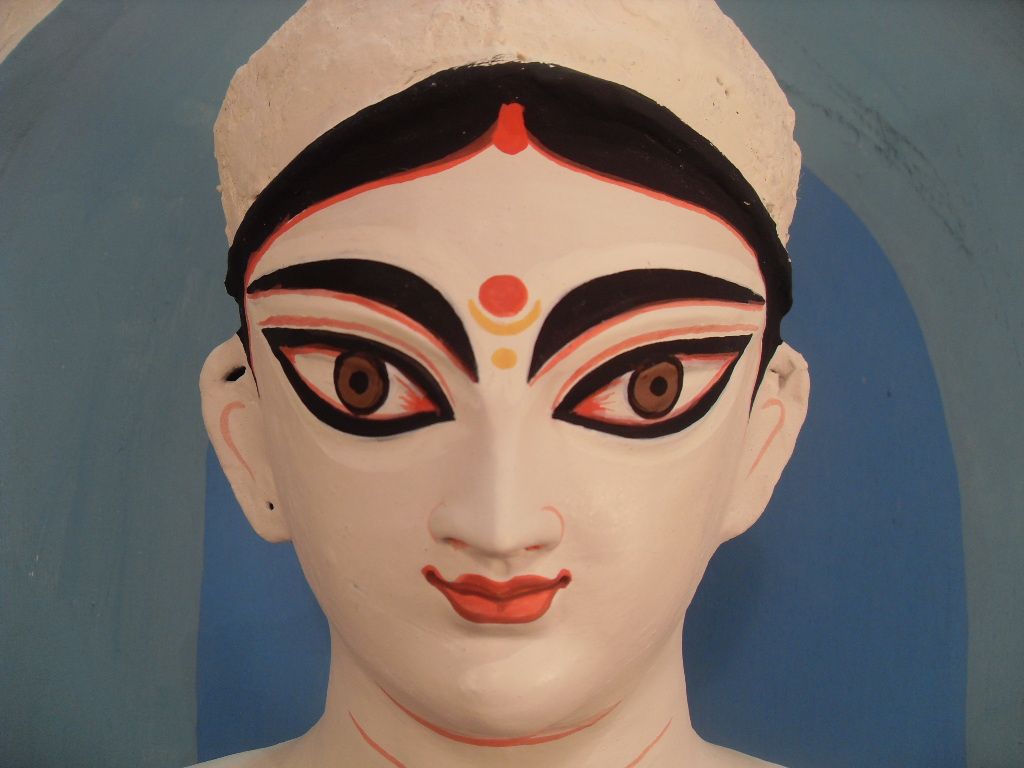
Lakshmi
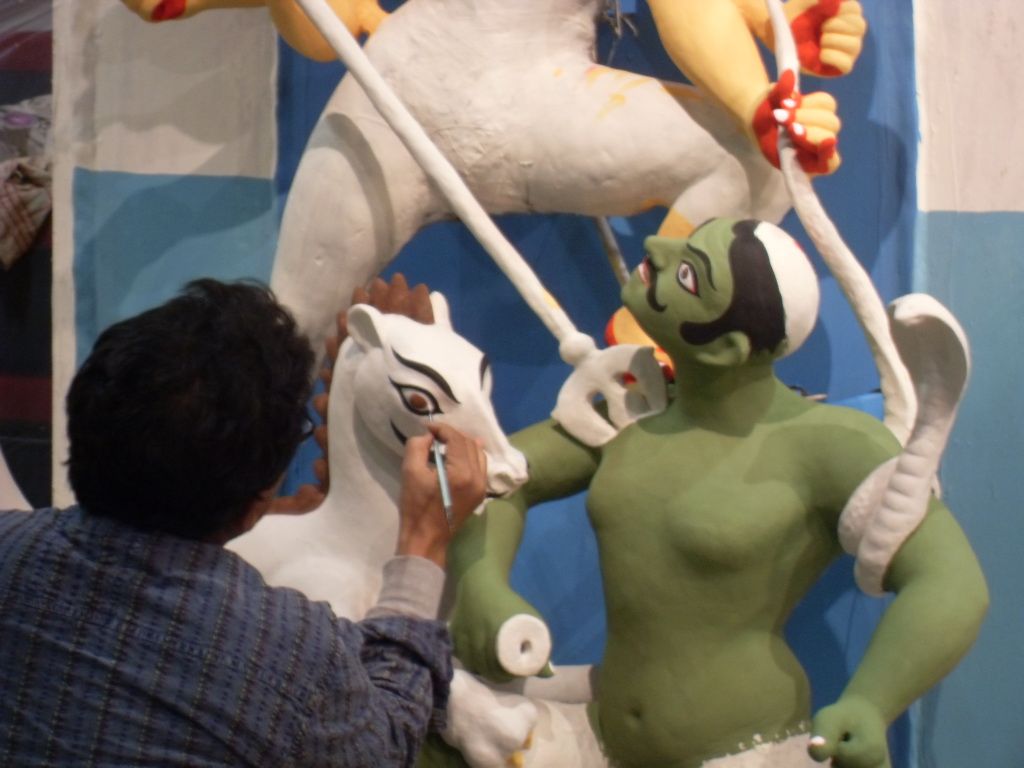
The artist Purnendu Dey painting the lion's eye
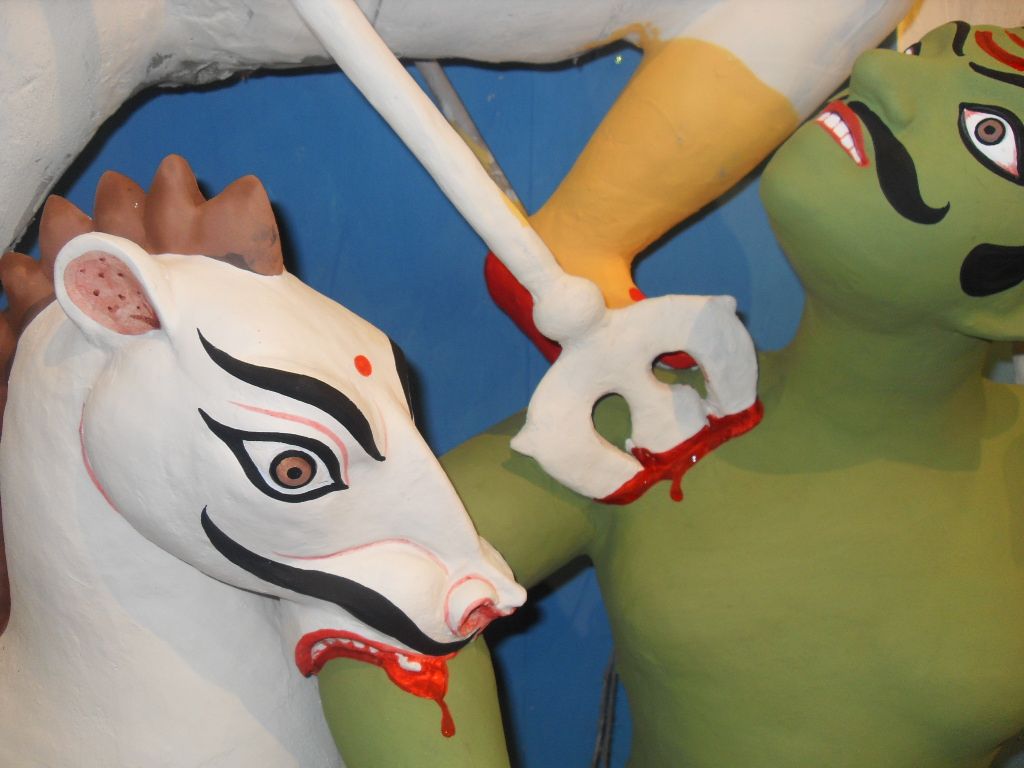
The Goddess Durga's lion attacking the buffalo demon
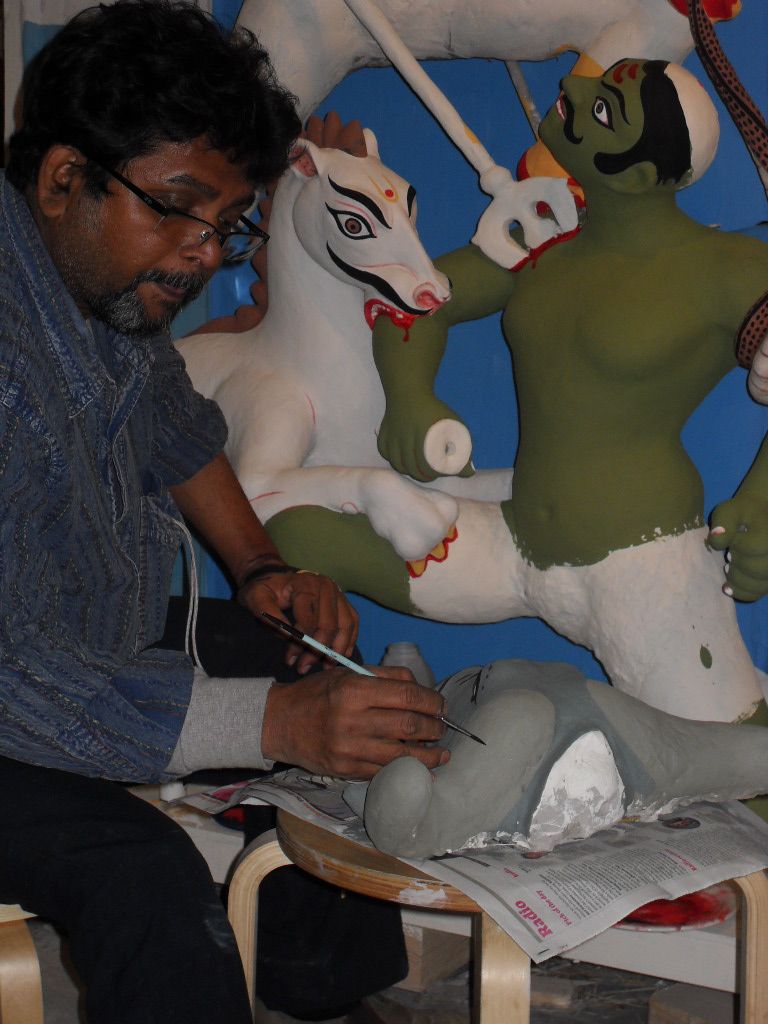
The artist Purnendu Dey painting the buffalo's head
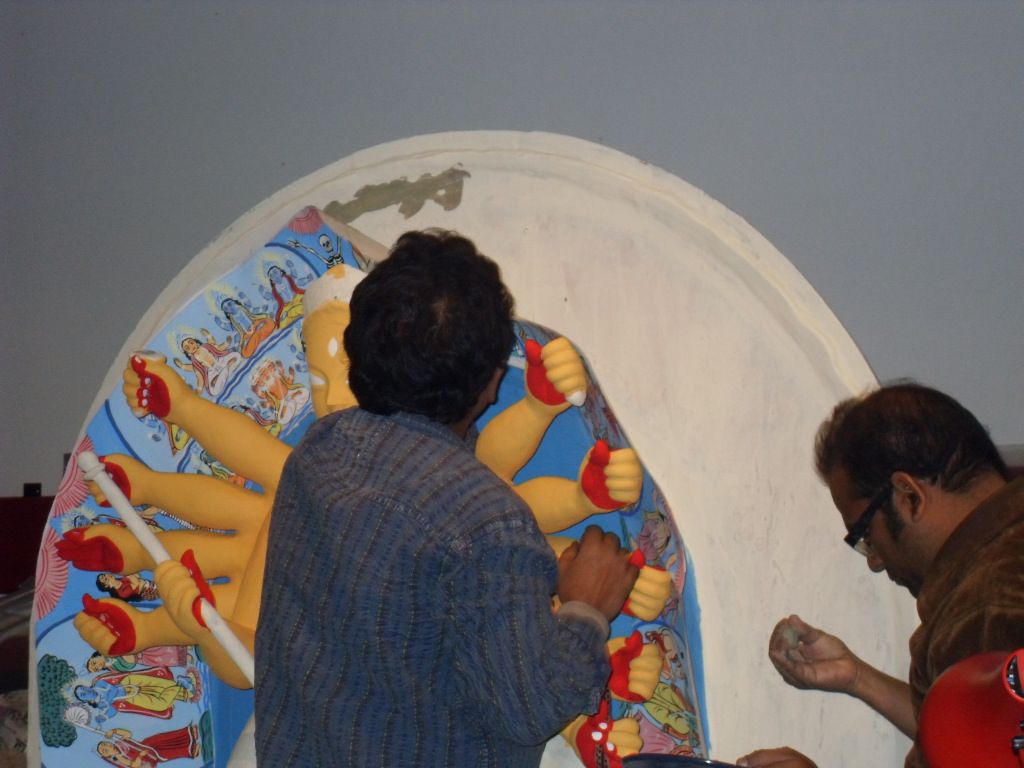
Placing the hand-painted background behind the Goddess Durga
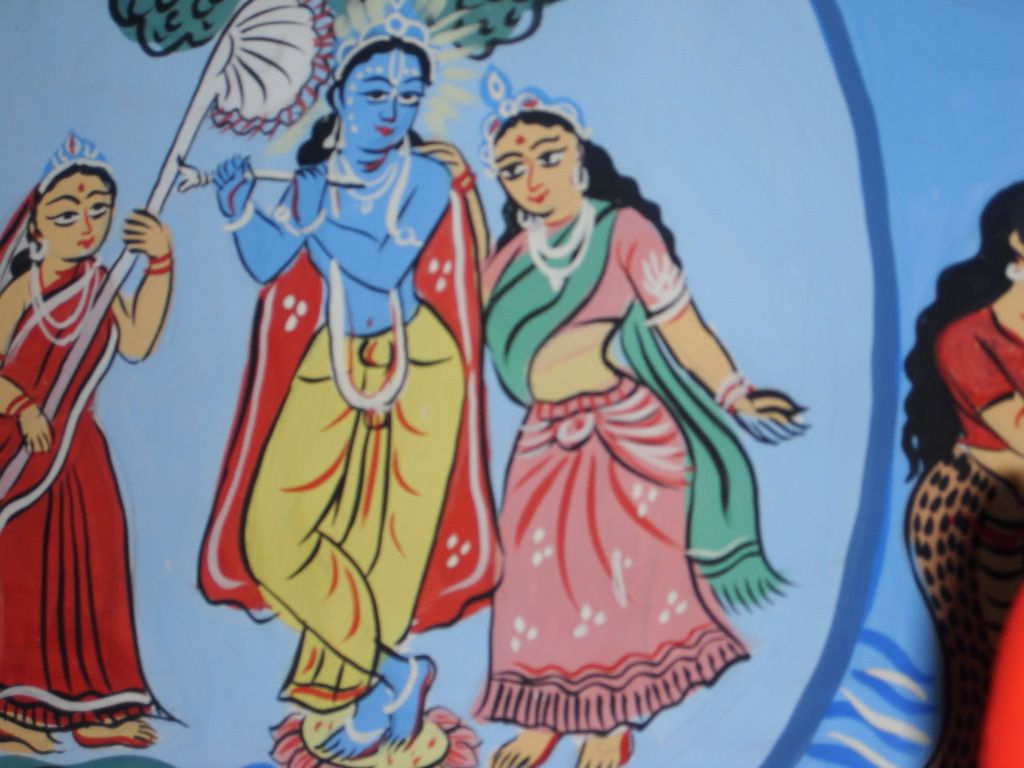
A closer look at the hand-painted background
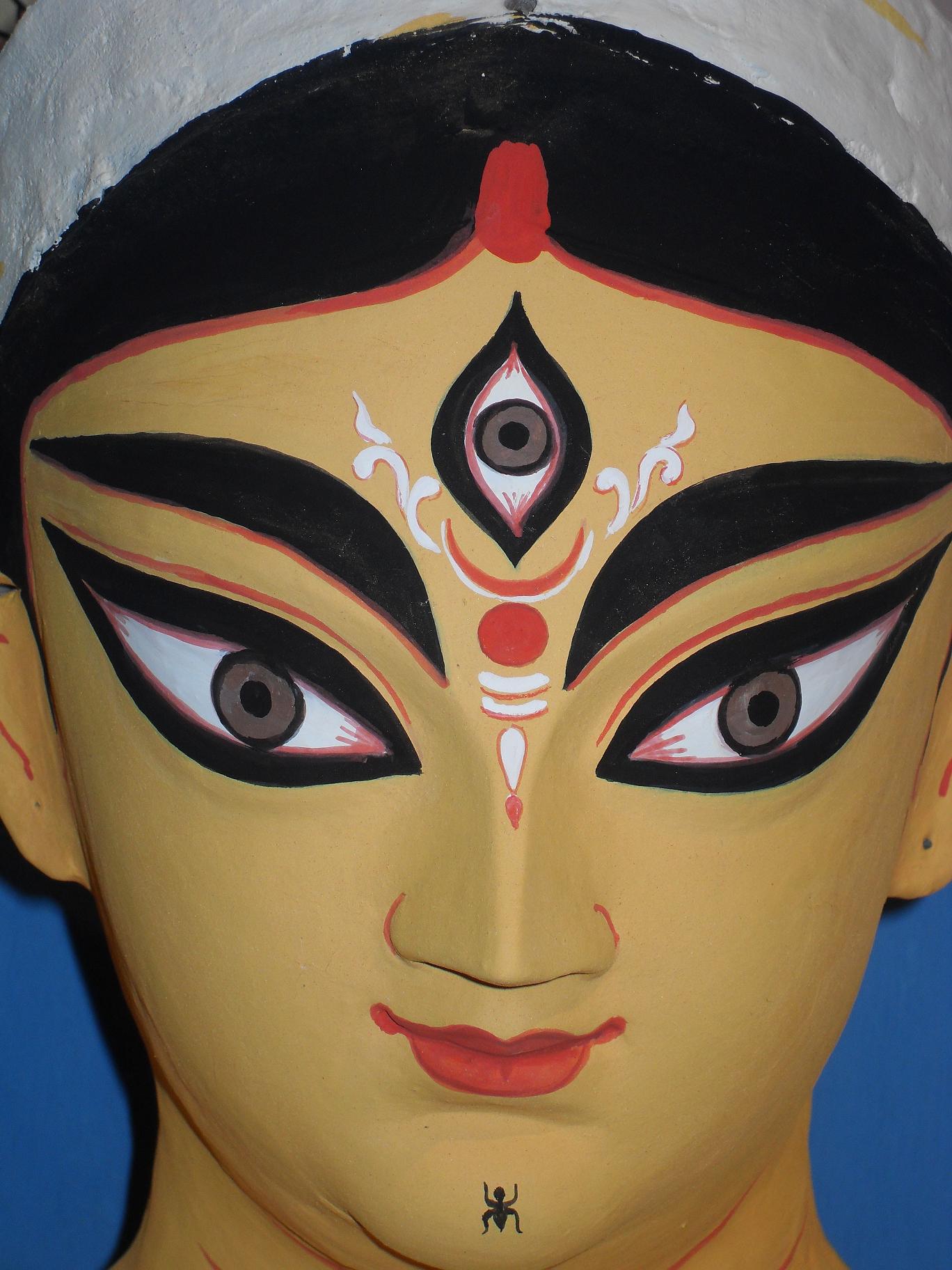
The Goddess Durga after the painting of the eye ceremony. From this point onwards the Hindus believe that the image is enlivened, and the Goddess is worshipped as though she has all the powers given to her by the Gods.
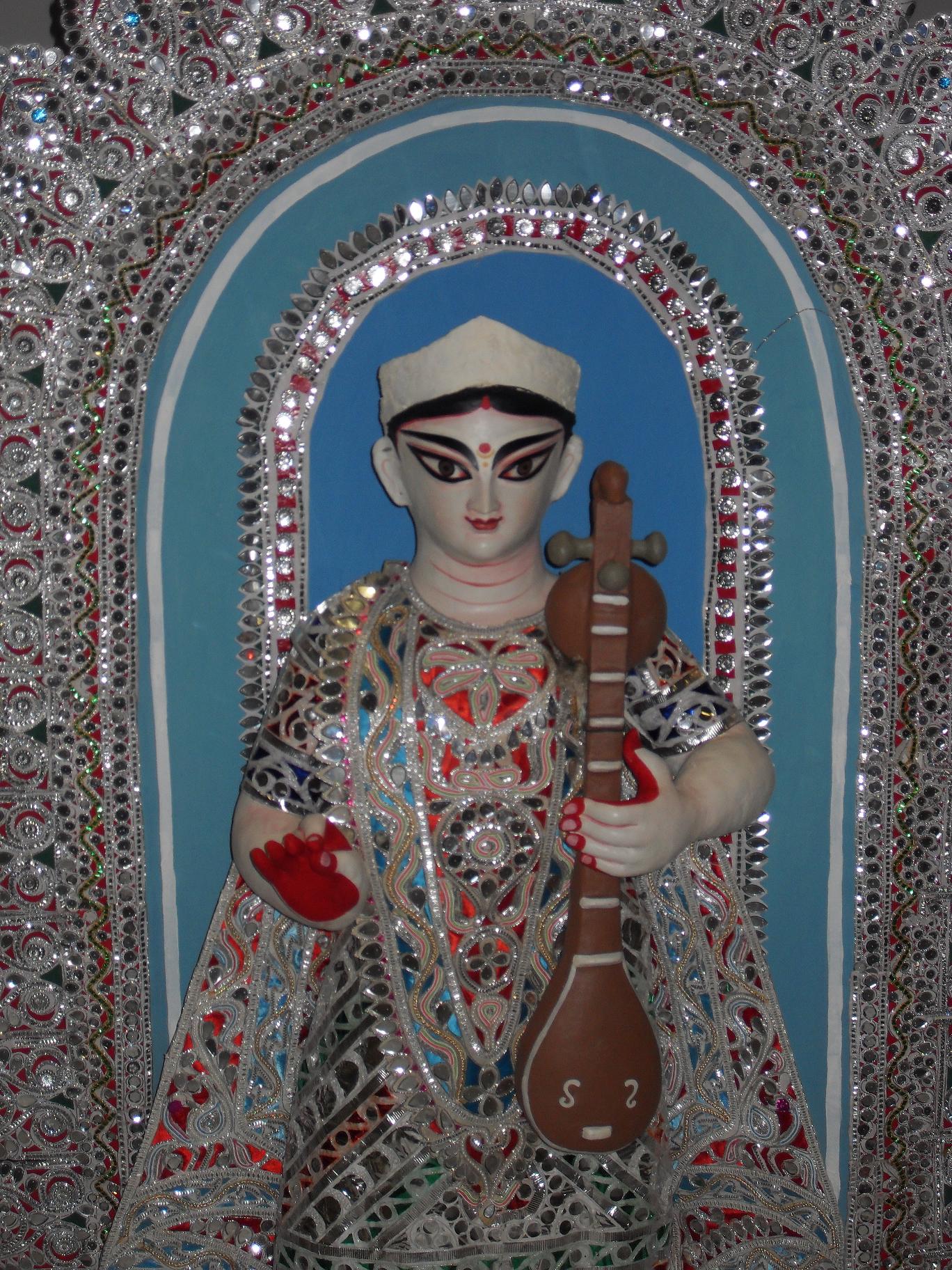
Sarasvati, Goddess of Knowledge and the Arts, holding her instrument, the veena.
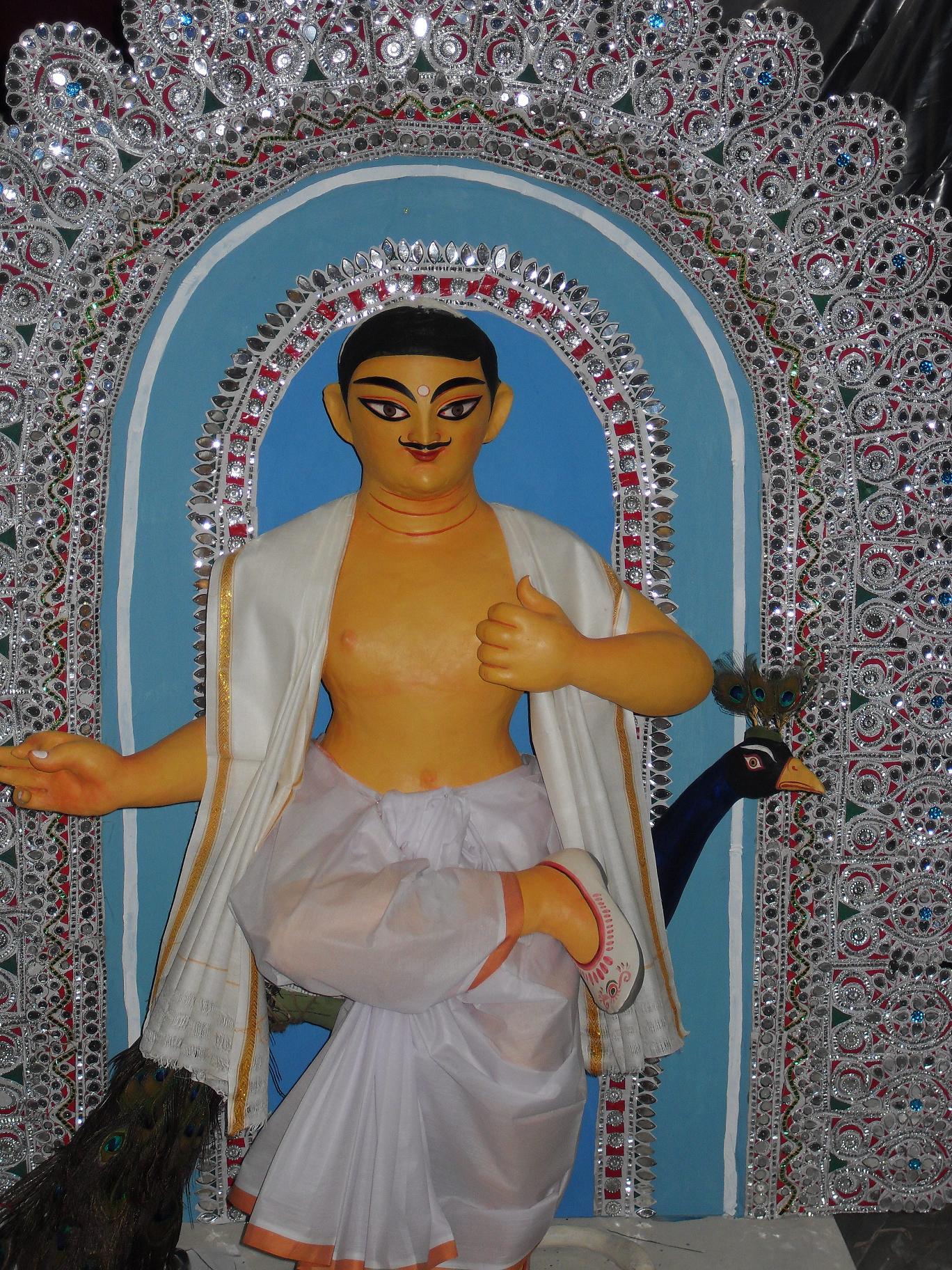
Kartikeya sitting on a peacock
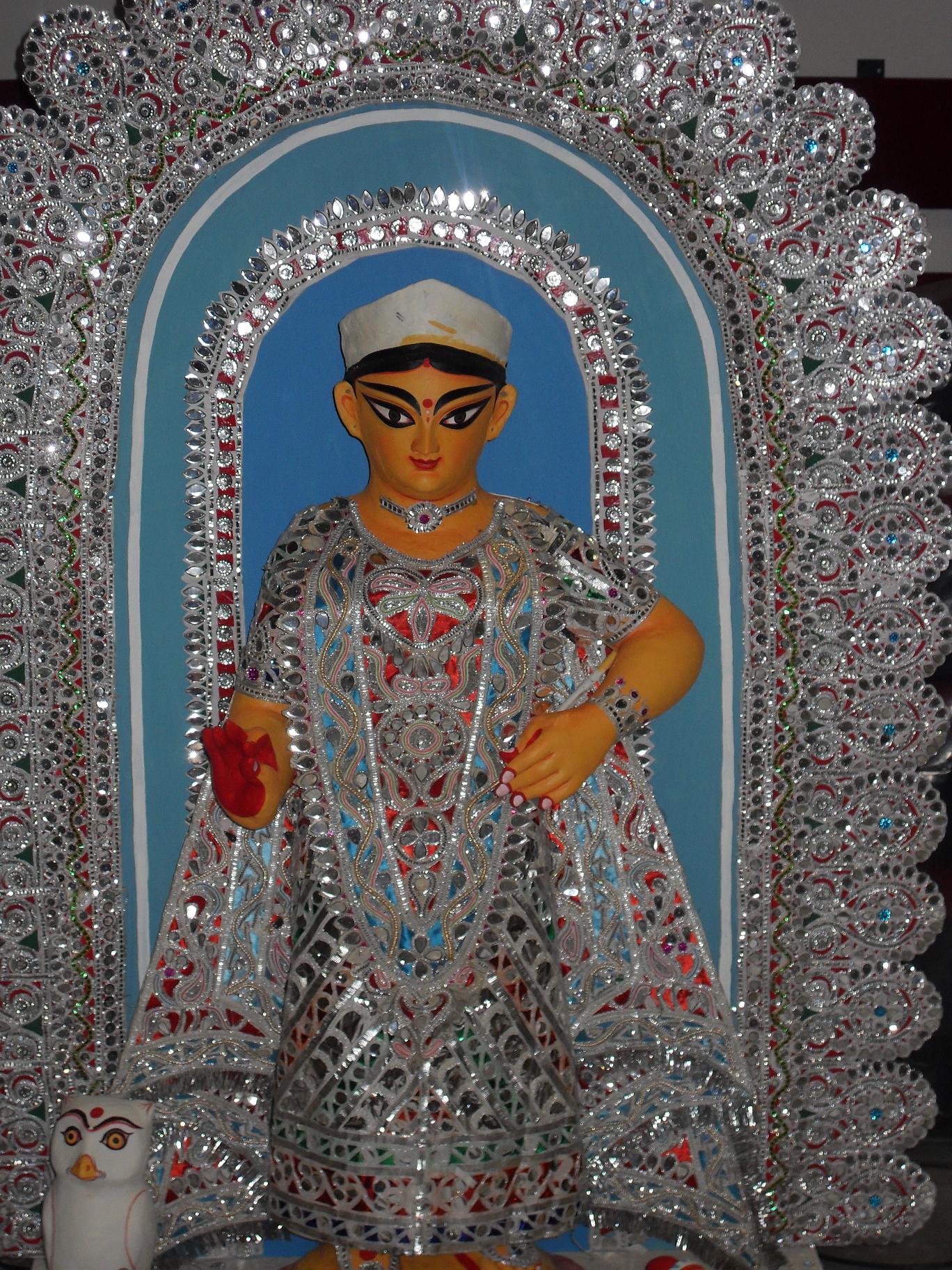
Lakshmi
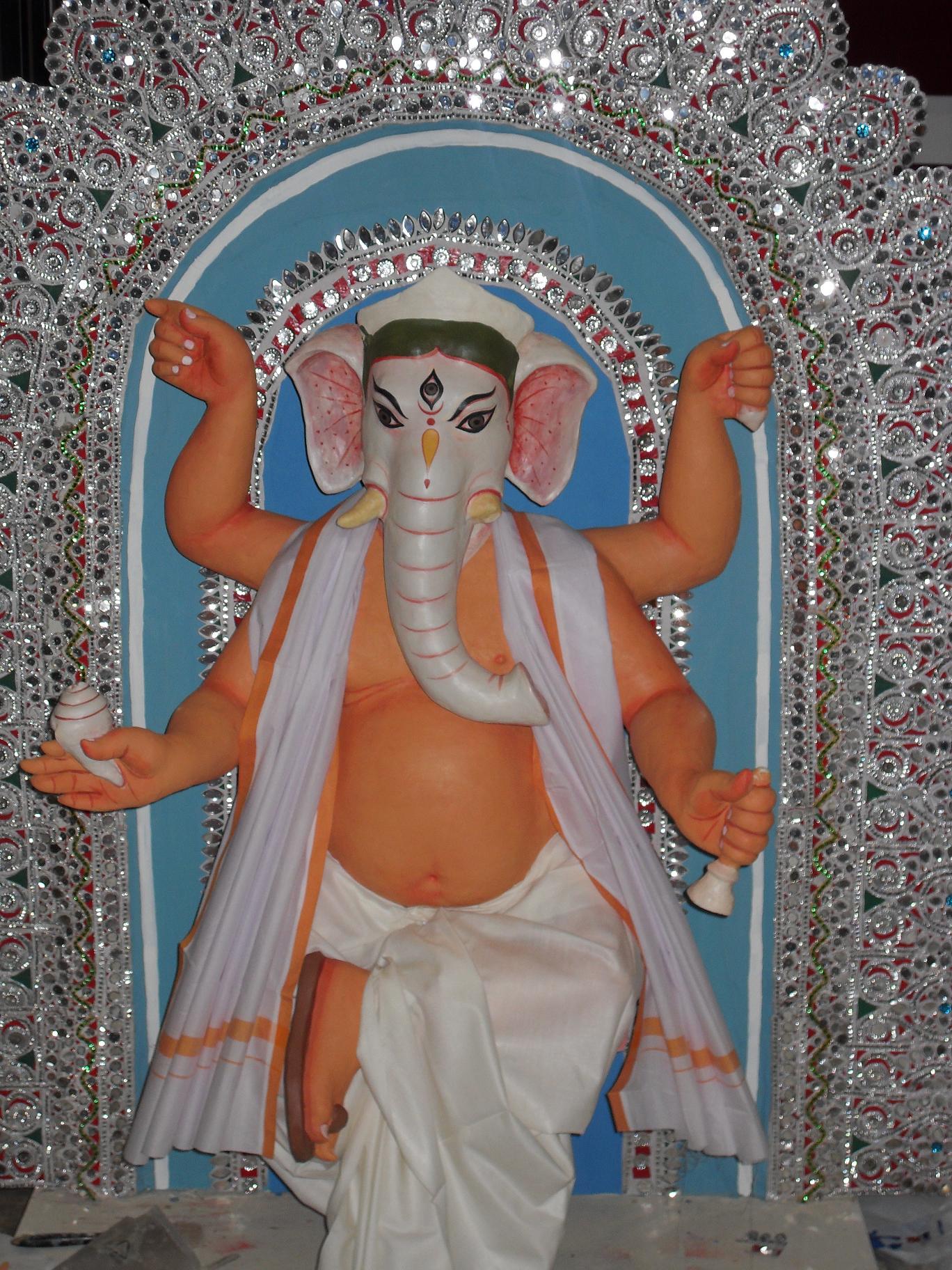
Ganesha, the lord of all living things
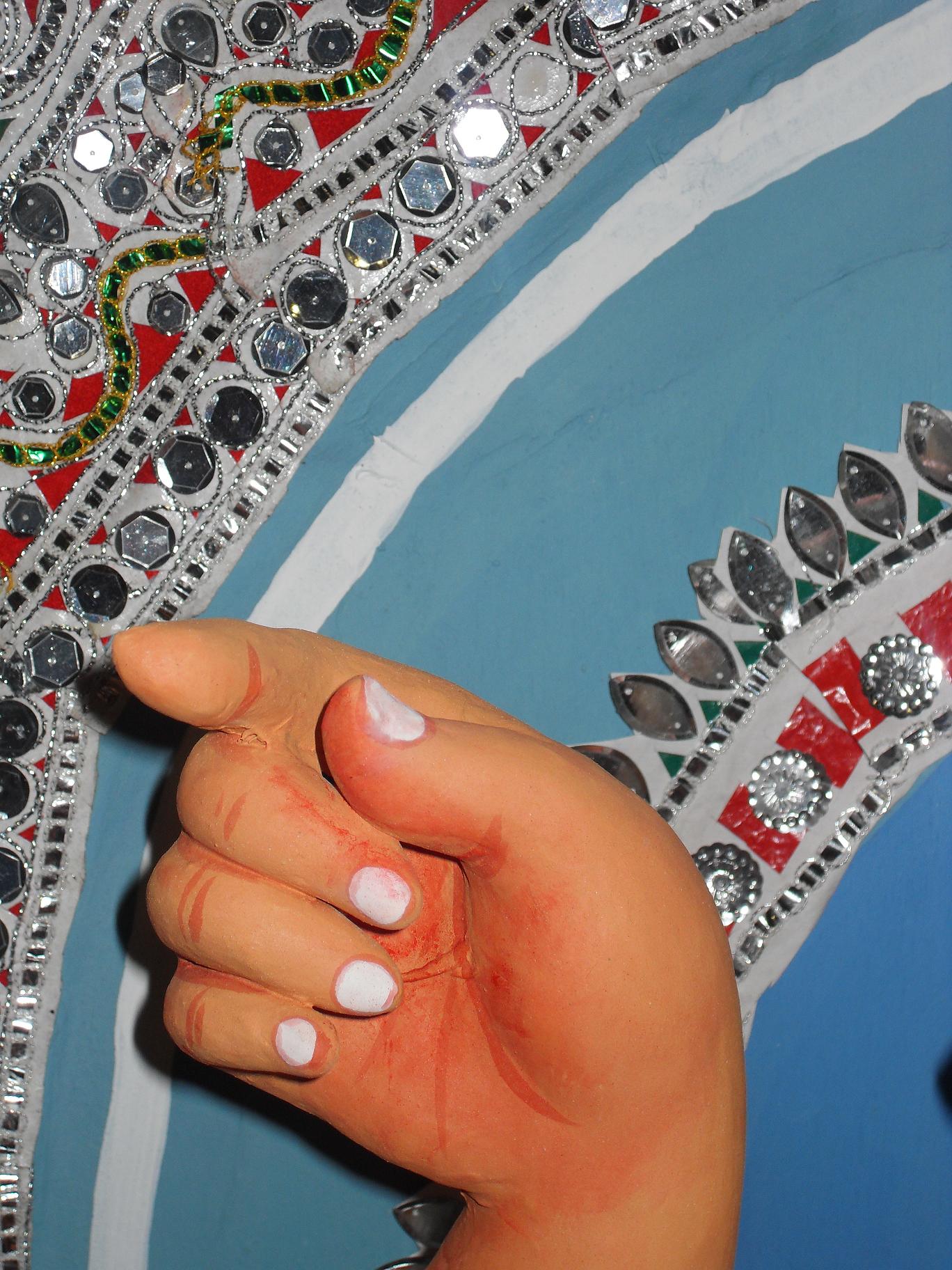
One of Ganesha's four hands
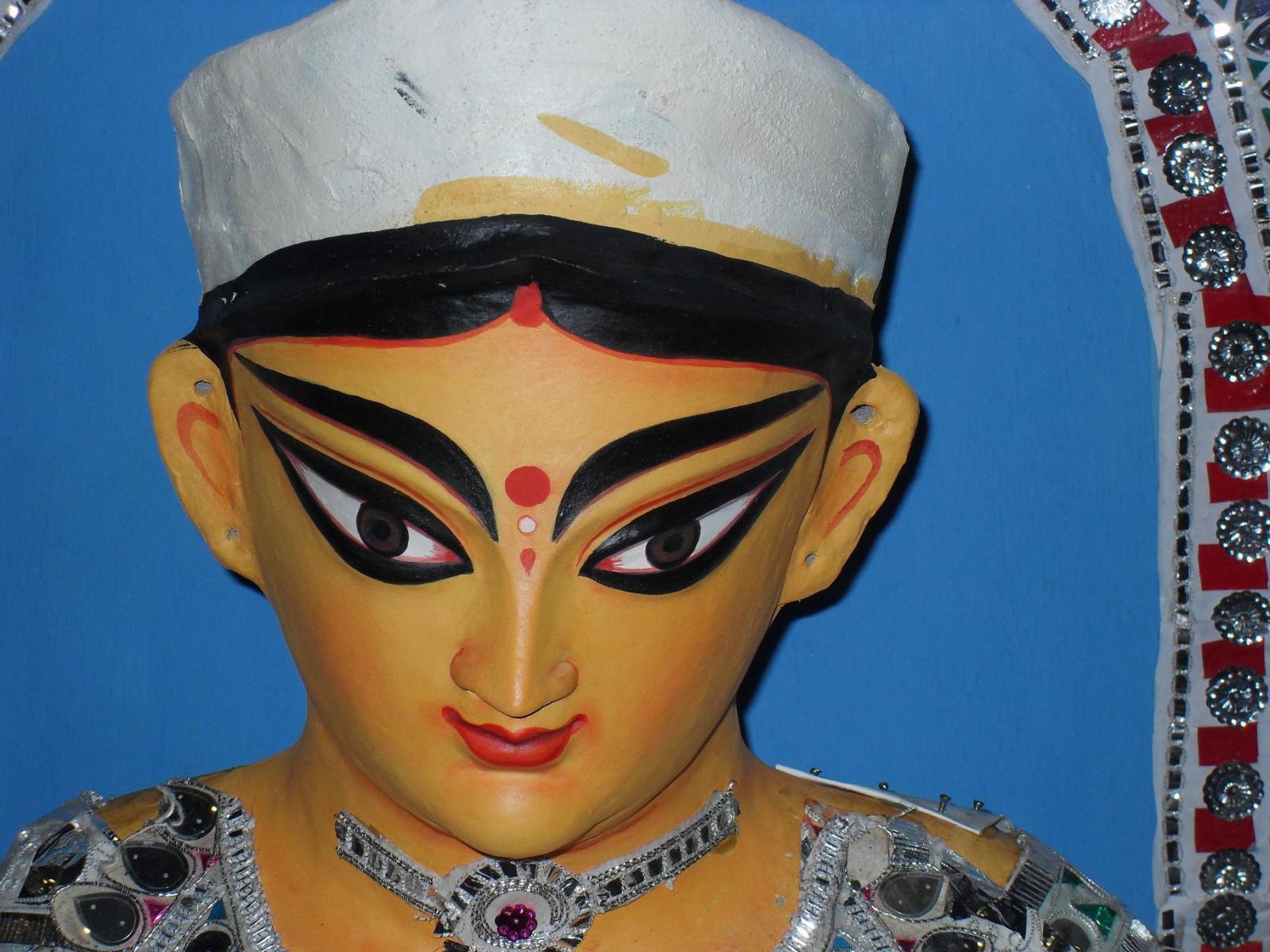
Lakshmi, Goddess of wealth and happiness
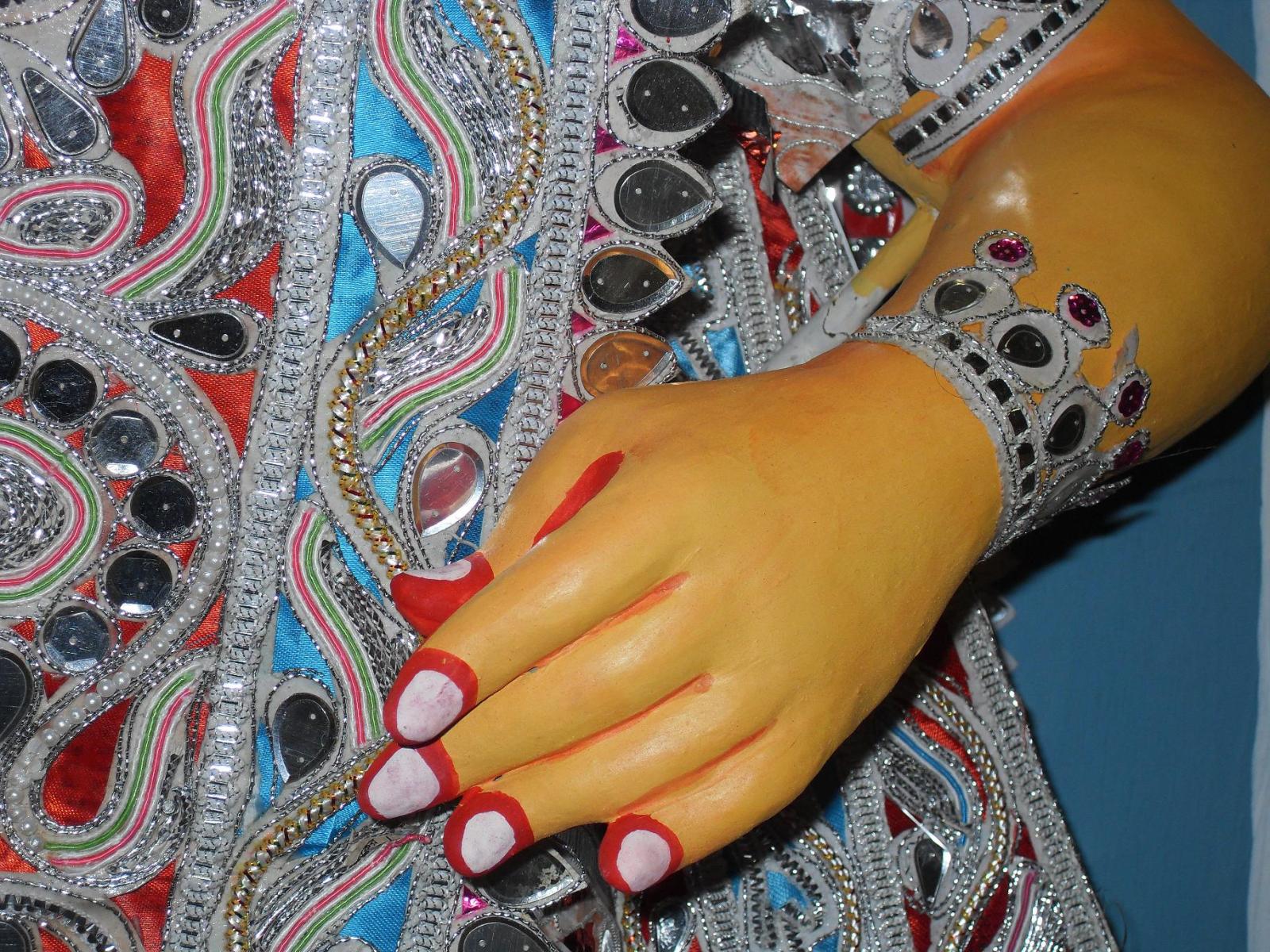
A close-up of Lakshmi's hand and costume
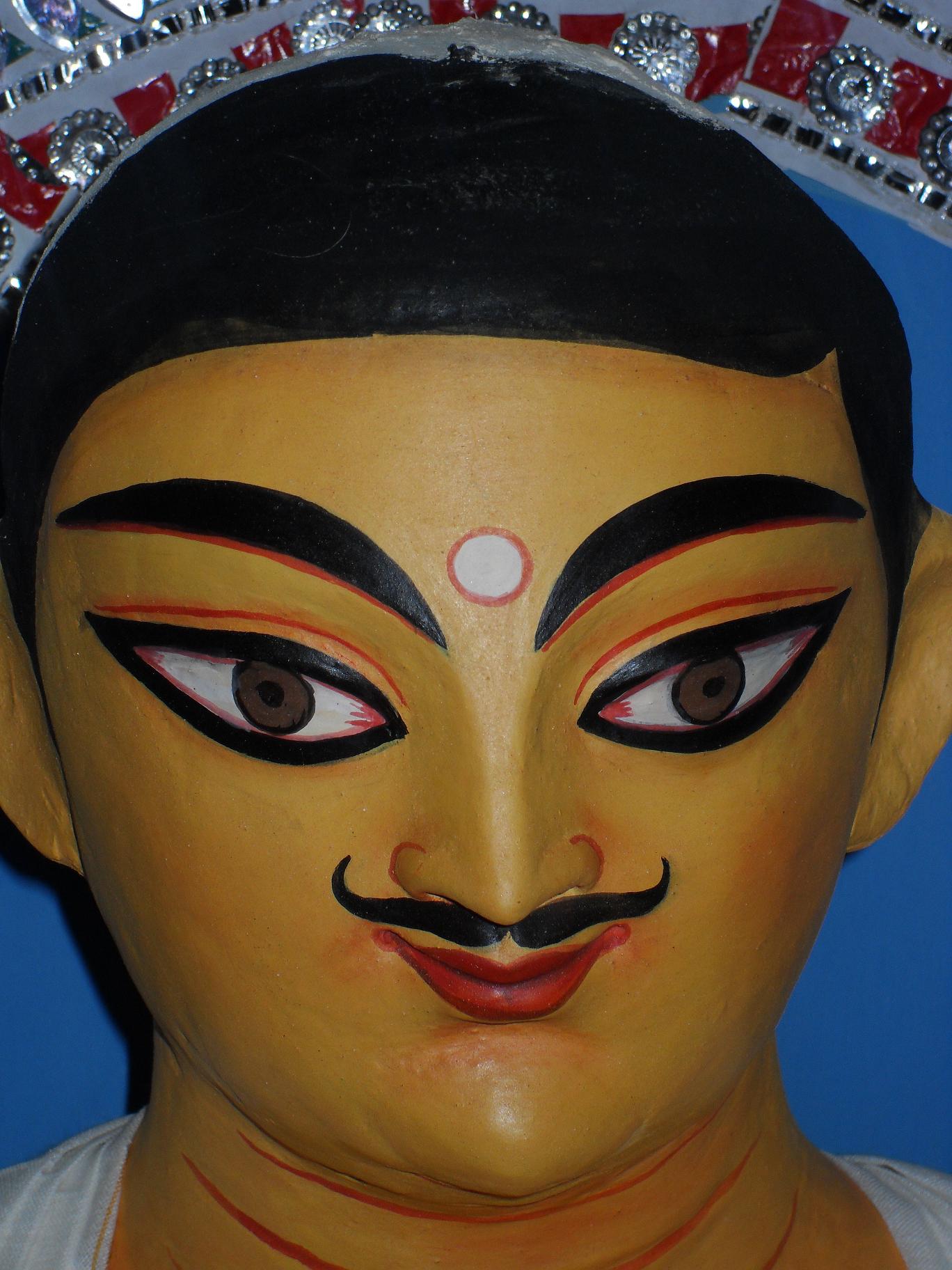
Kartikeya, the brave warrior and Ganesha's brother
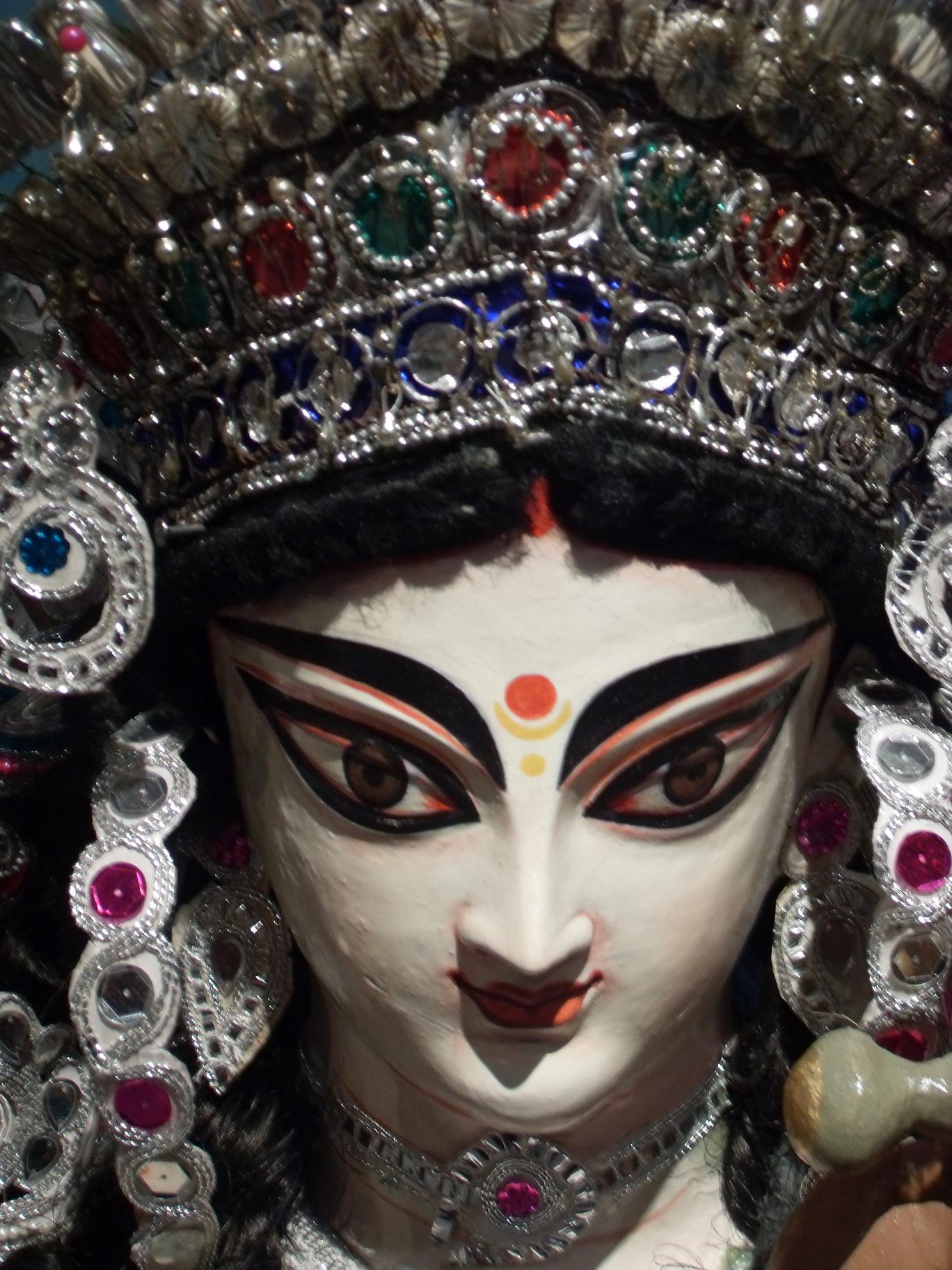
Sarasvati
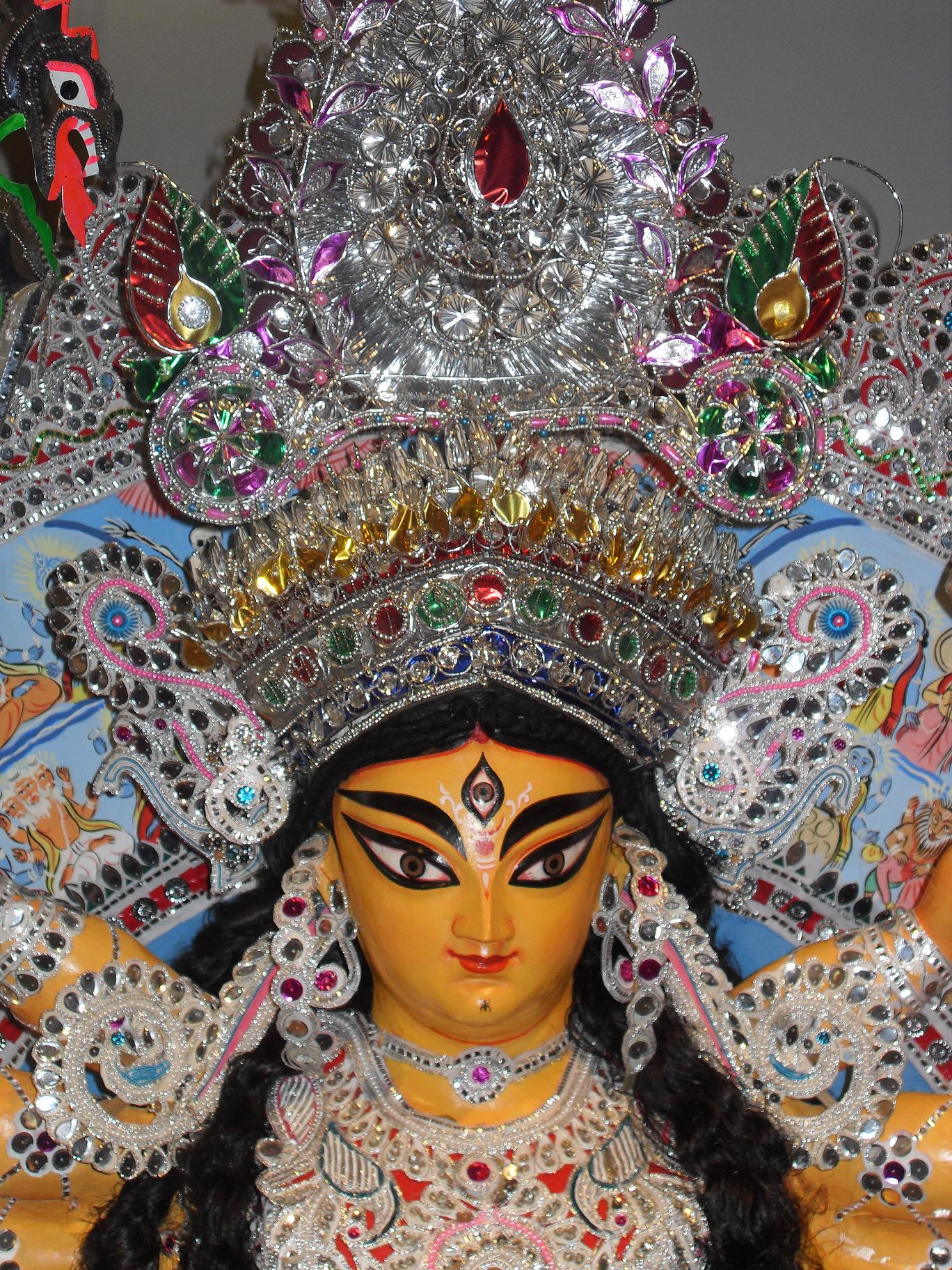
The Goddess Durga

The Goddess Durga ready for the Puja
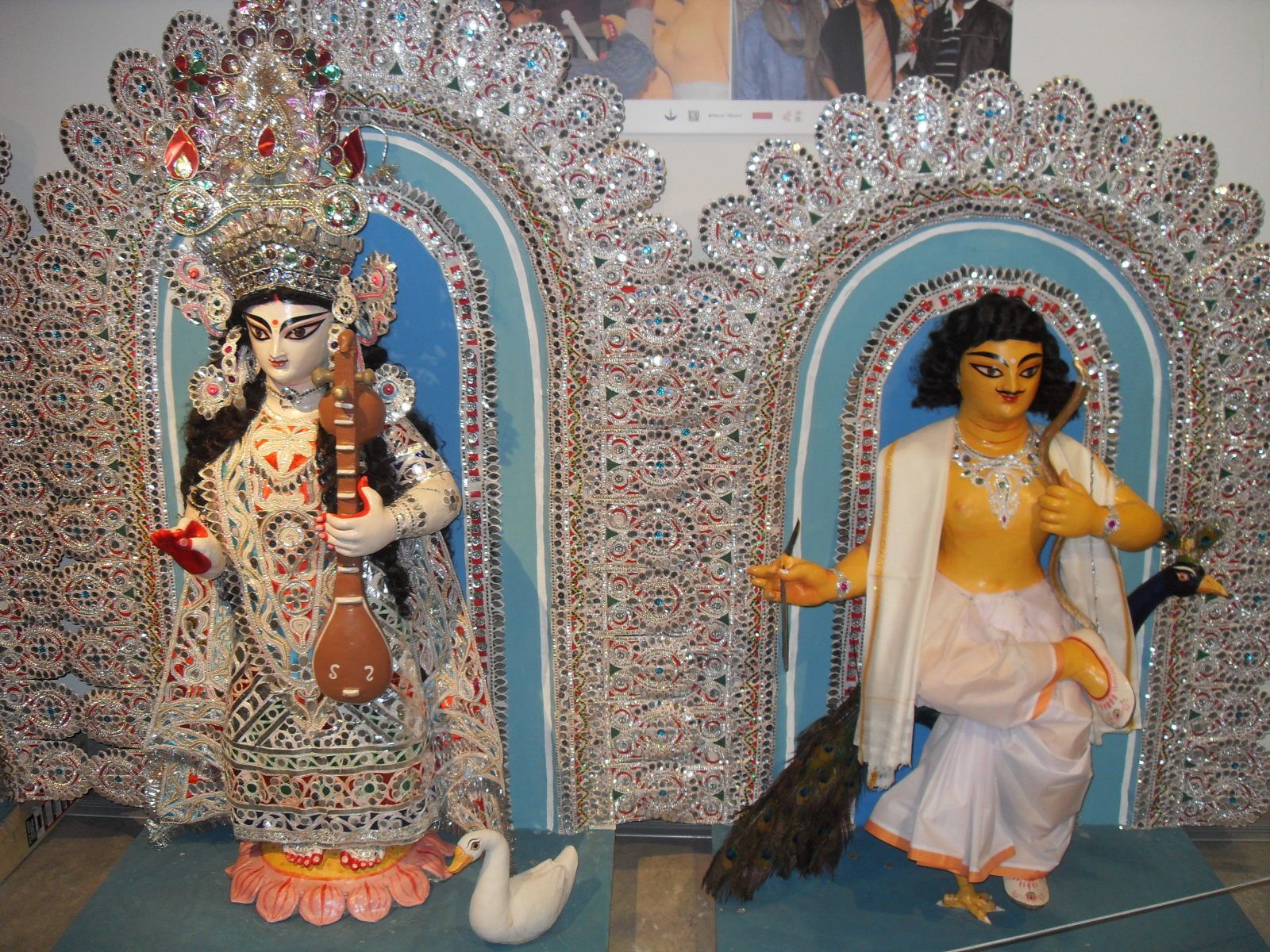
Sarasvati and Kartikeya
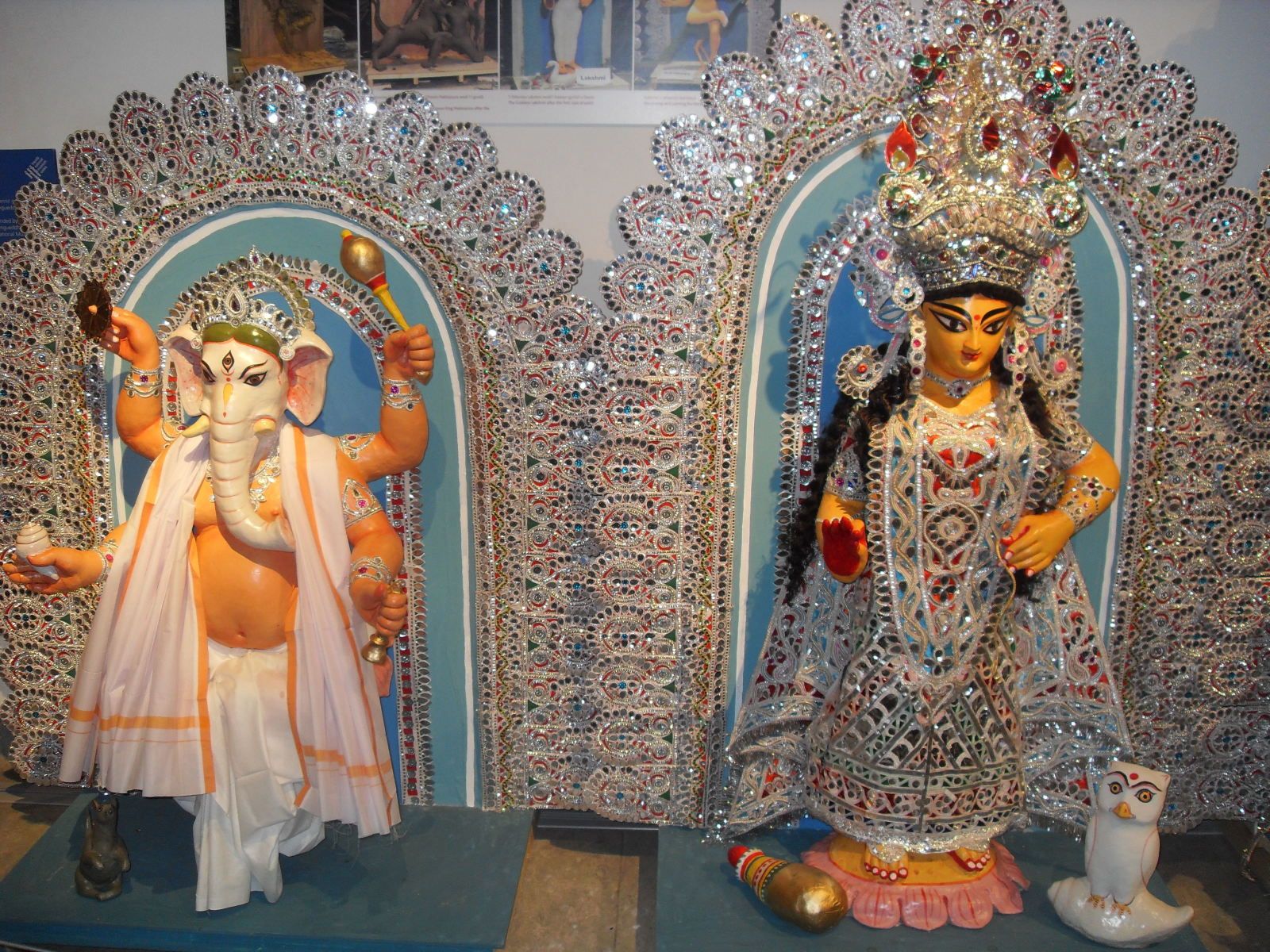
Ganesha and Lakshmi
Comments - (3)
(That’s why eyes are focused when you take a photograph. )
Beautiful idol!
I know how much time, effort and planning went behind this creation.
Thanks to Museum of Wales for facilitating this project
(Wales Puja committee) and had a superb experience working with Museum staff and their enthusiasm. Especially Sioned and Nia.